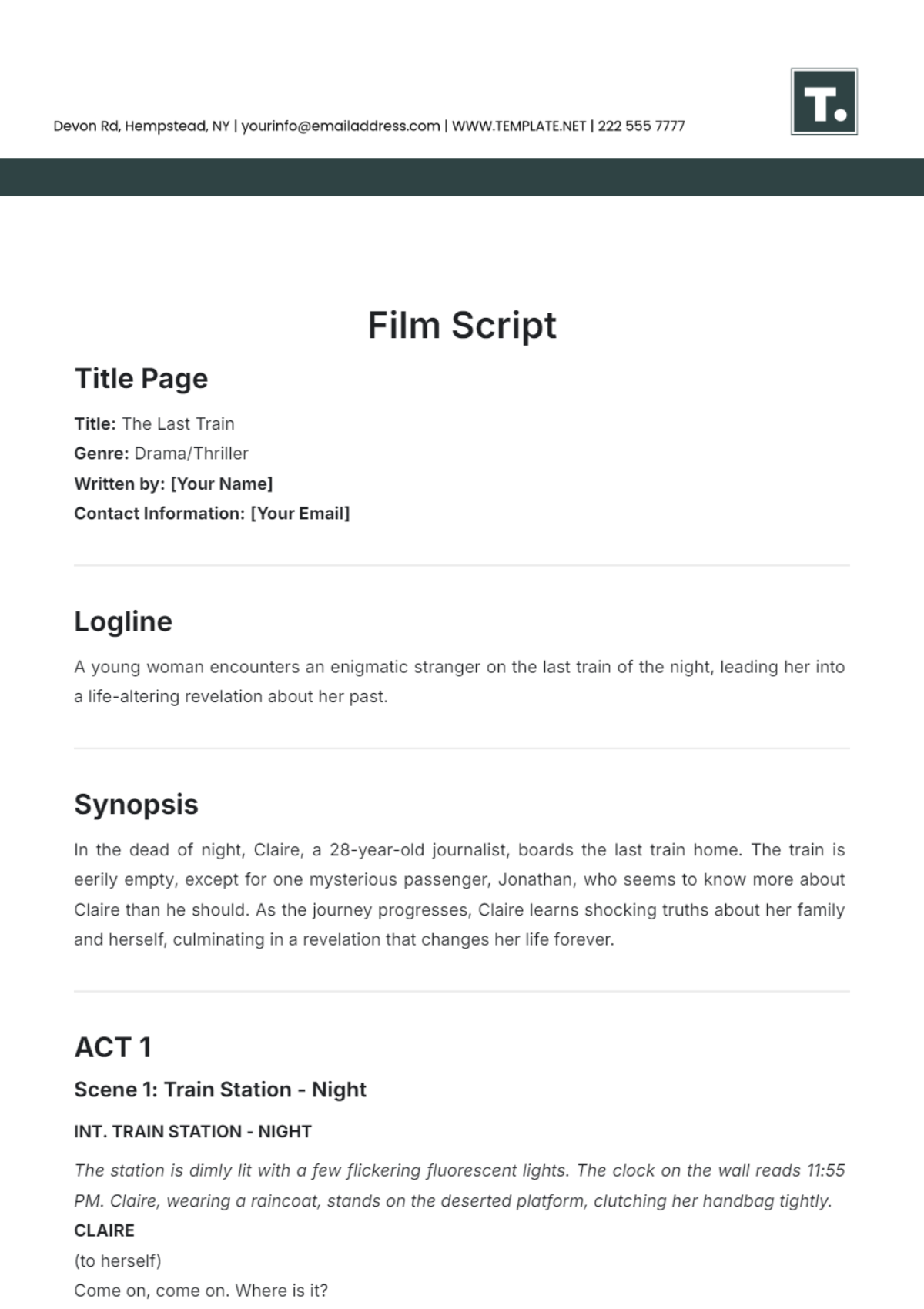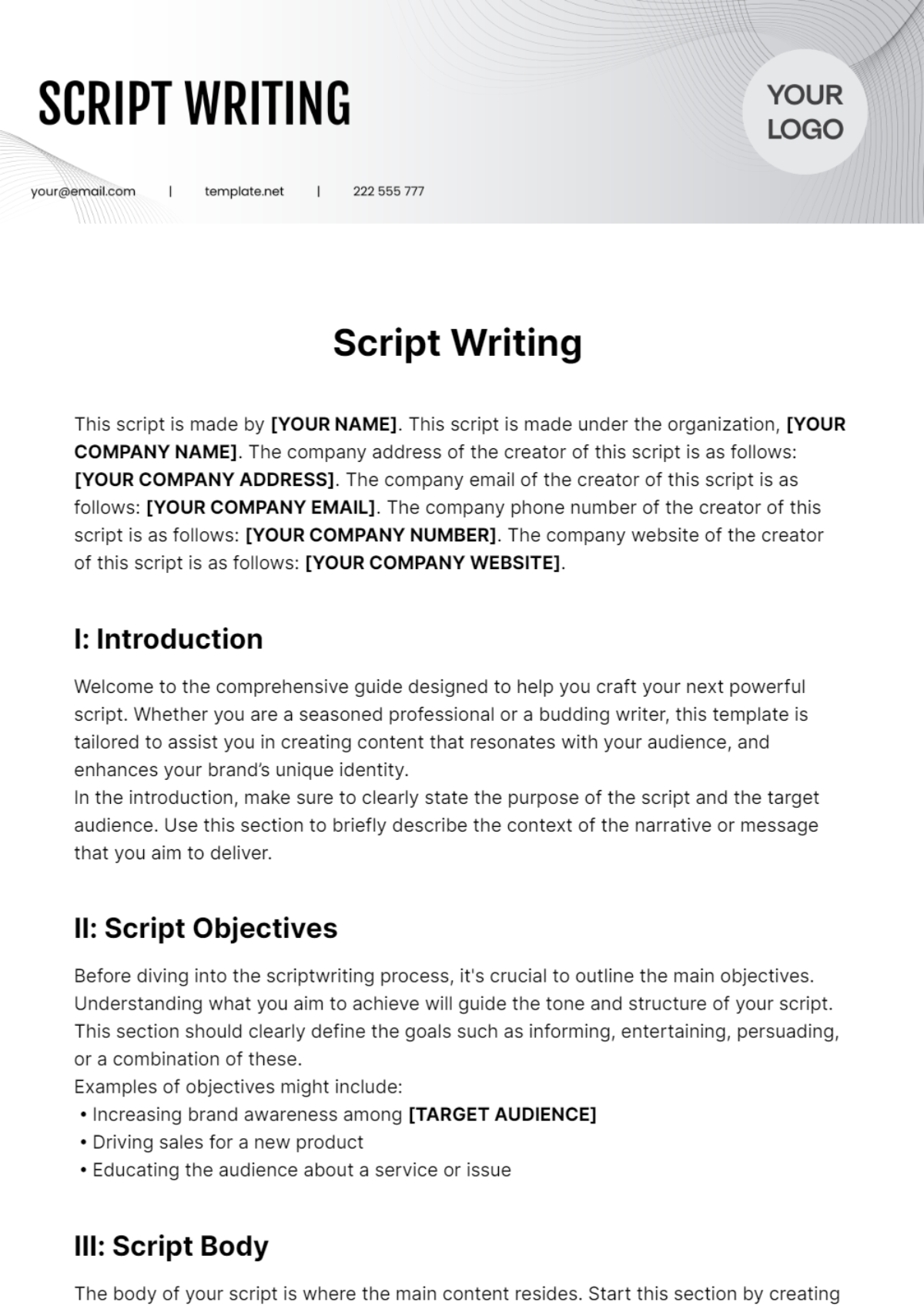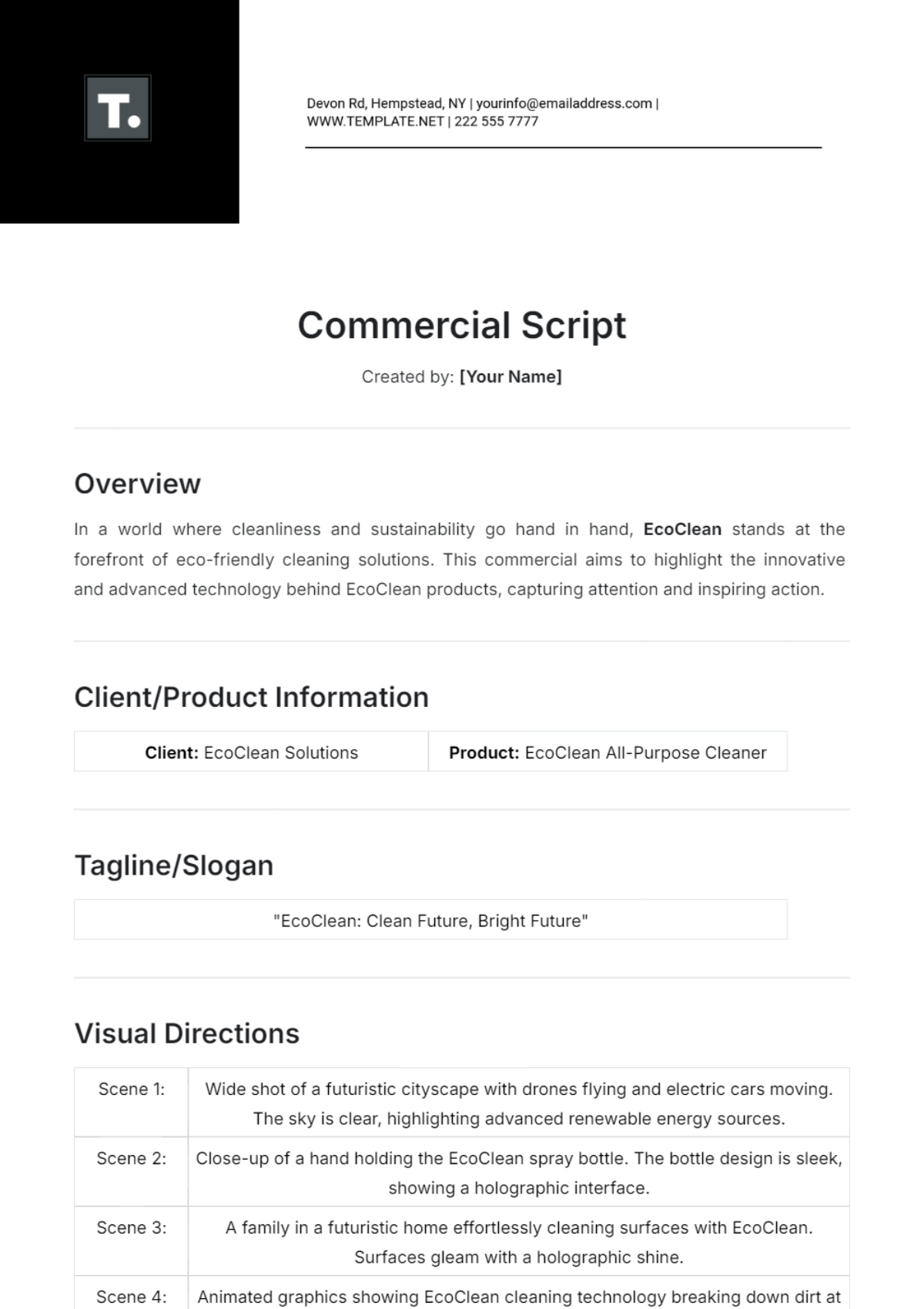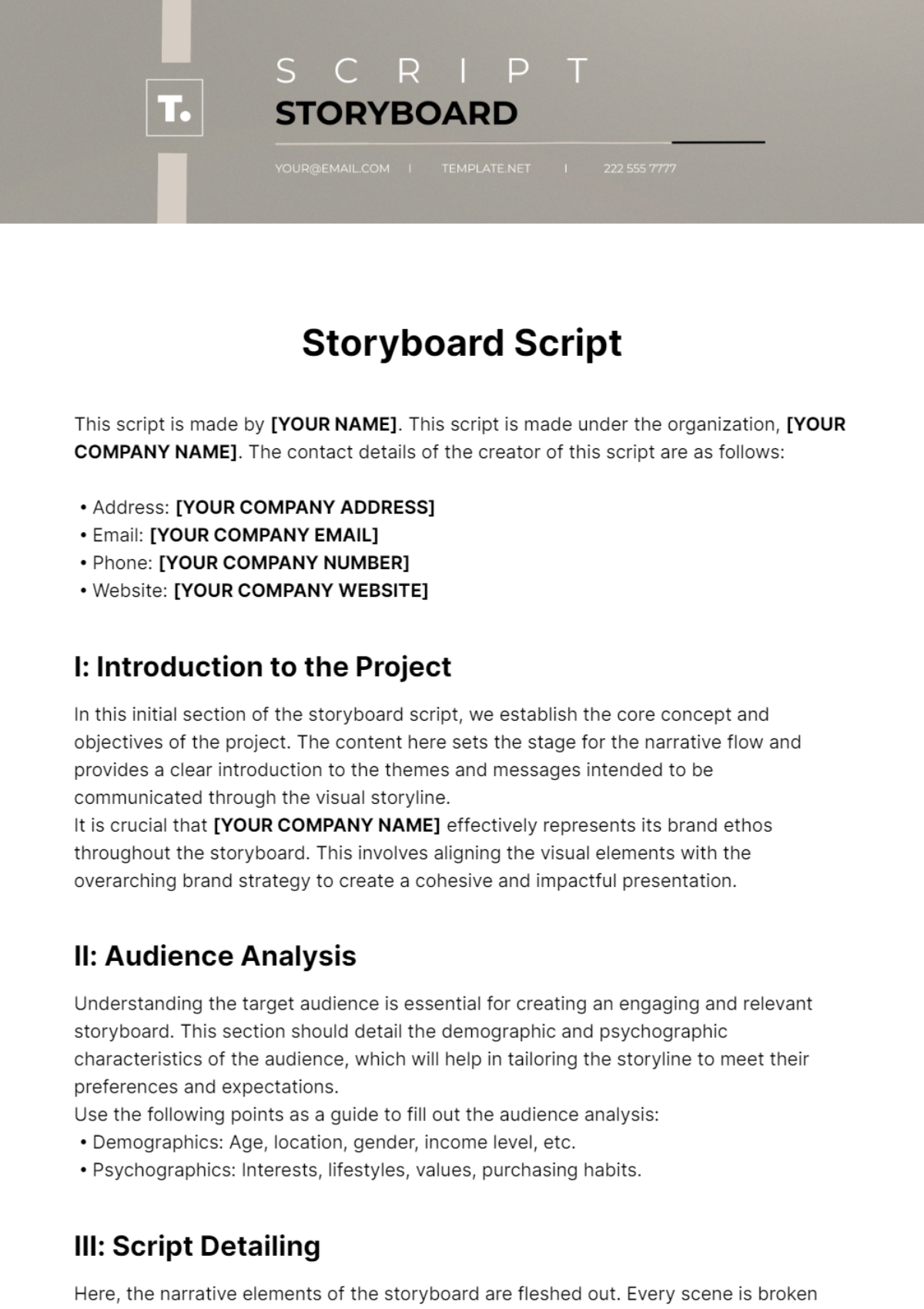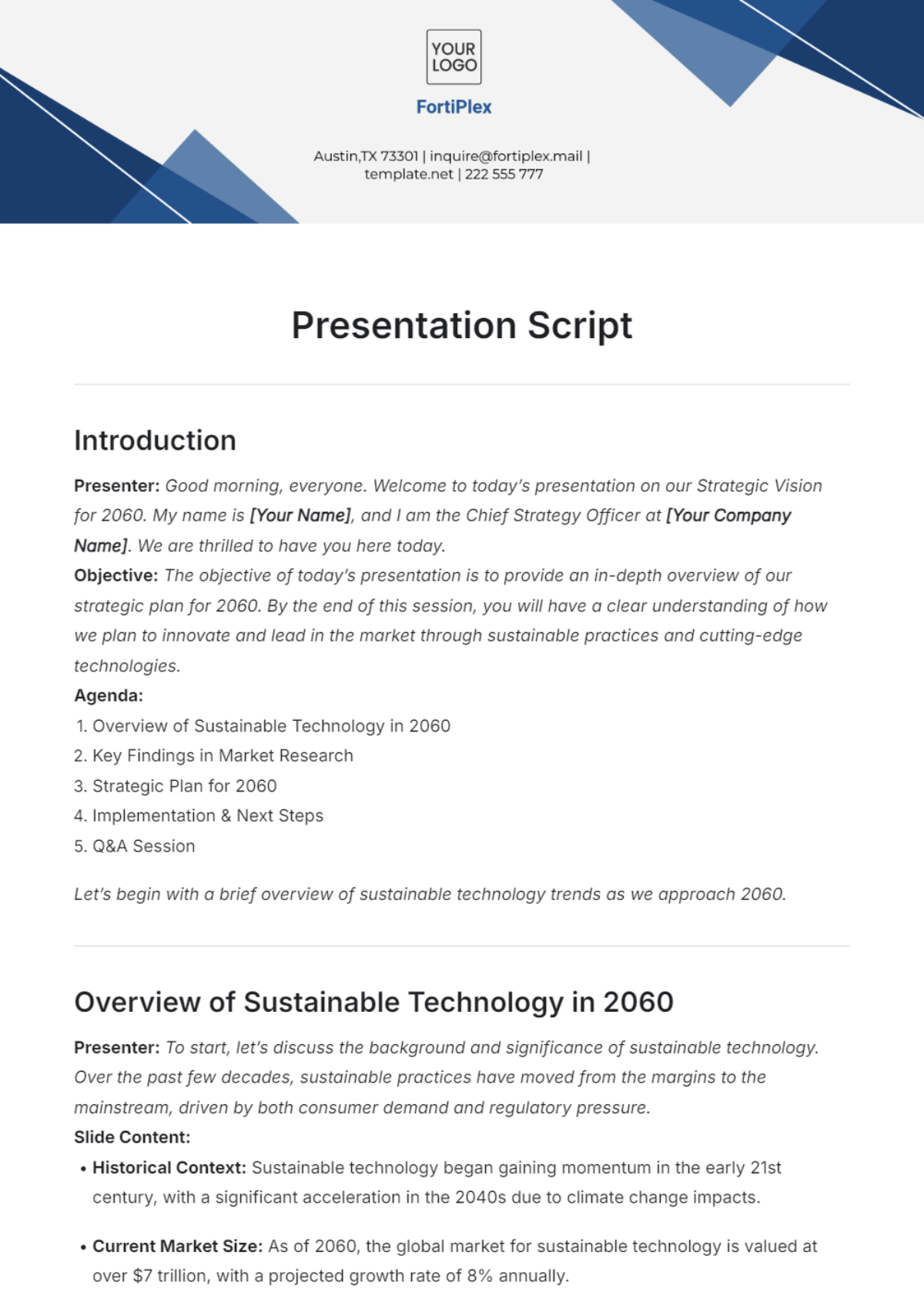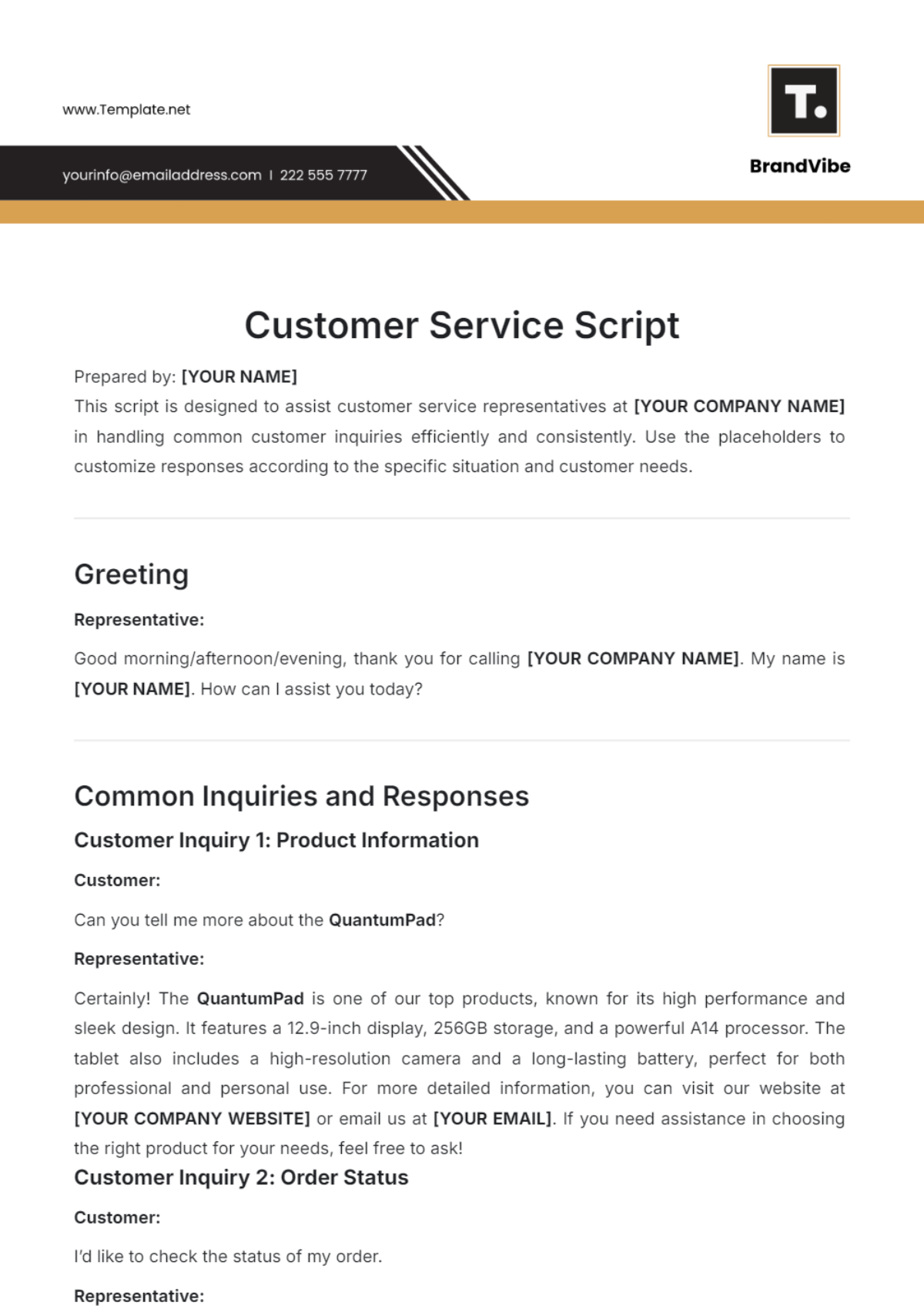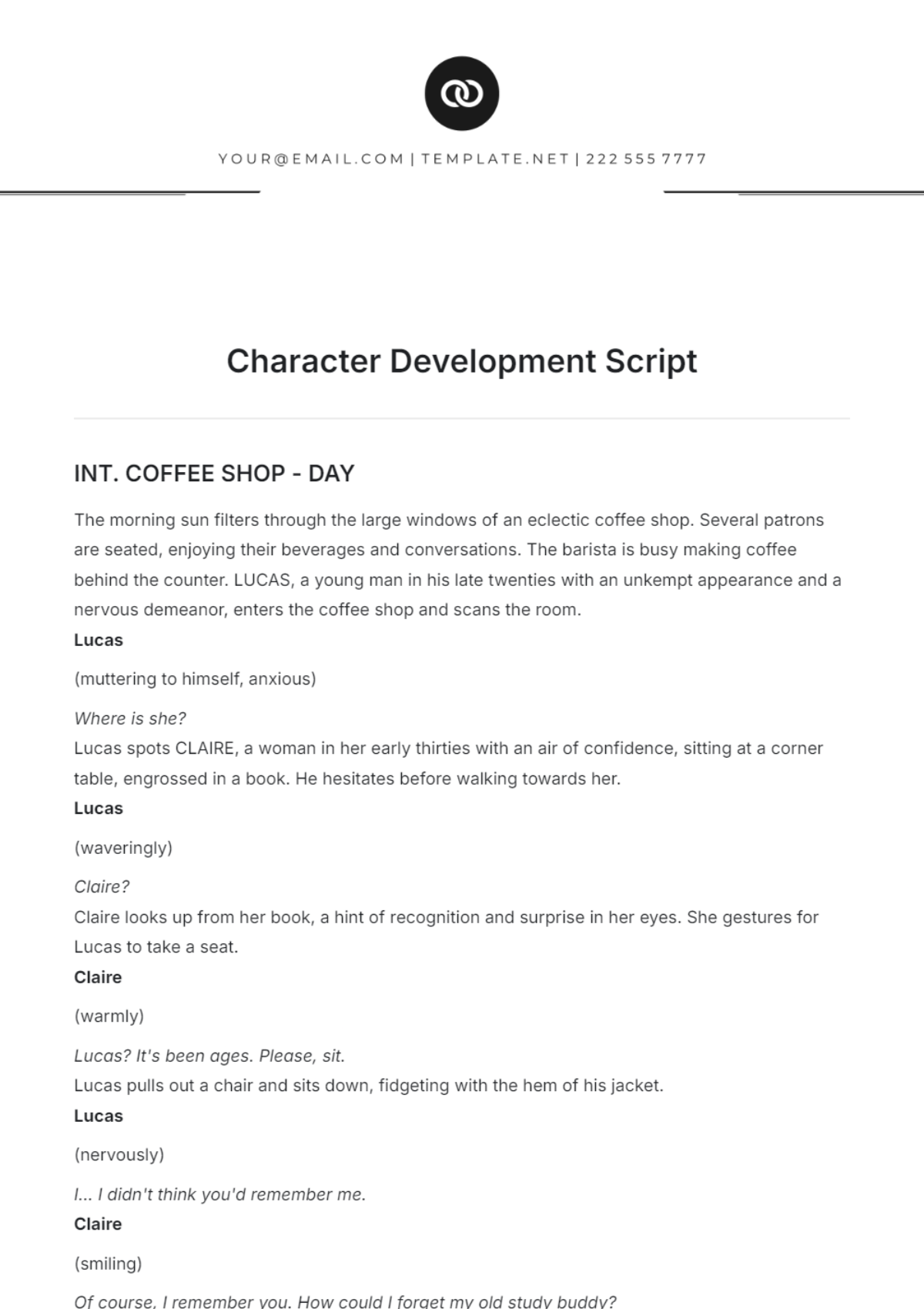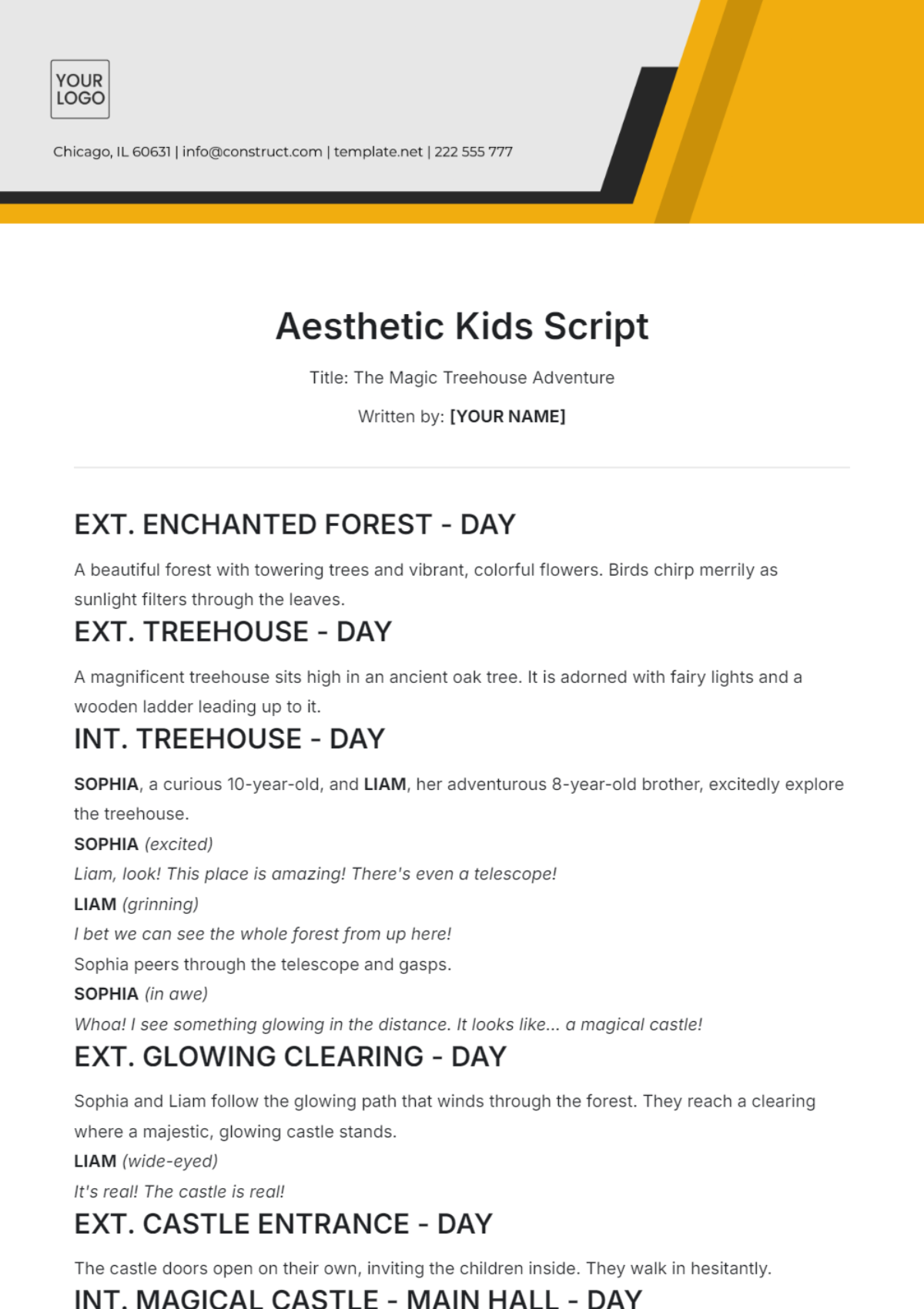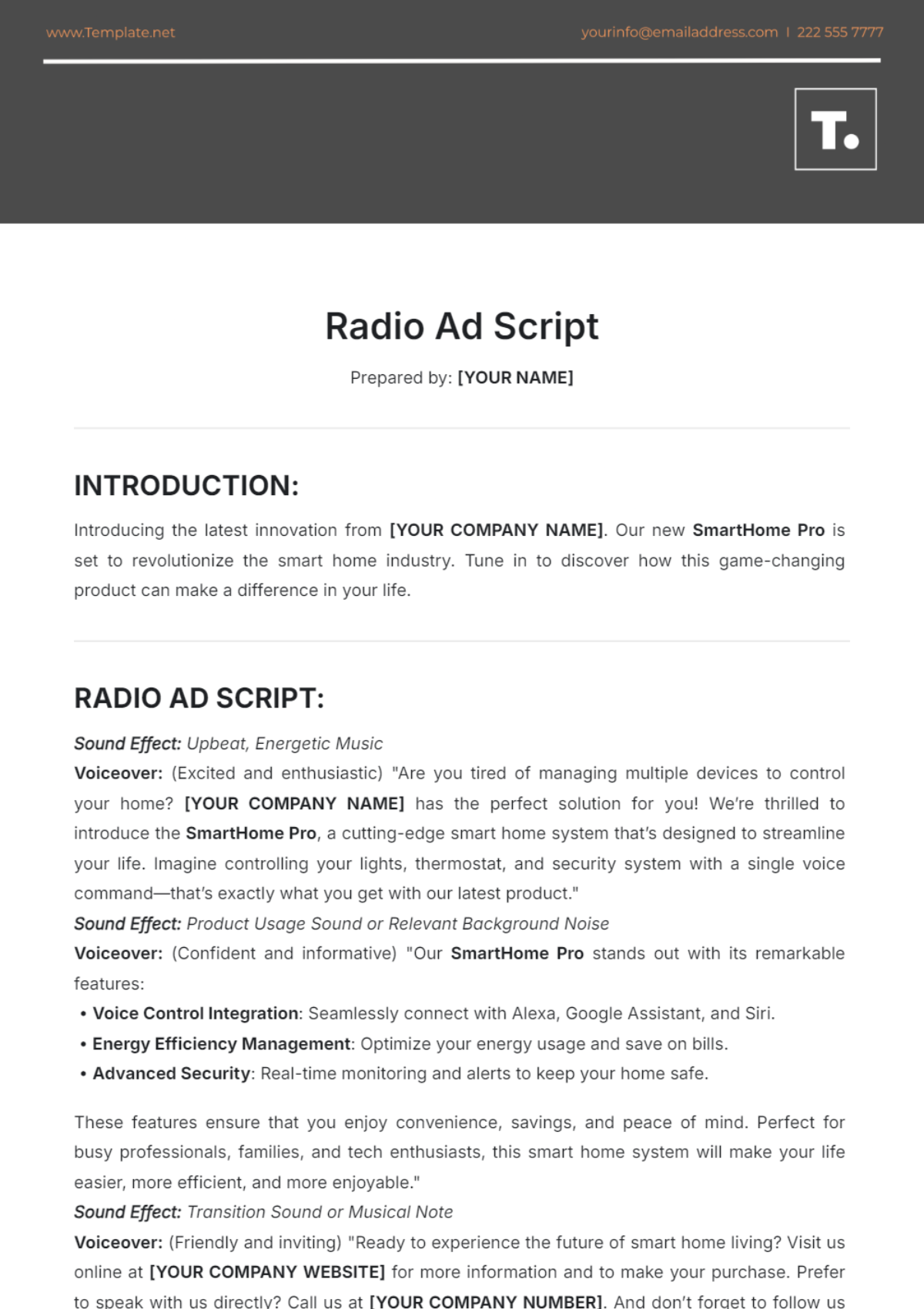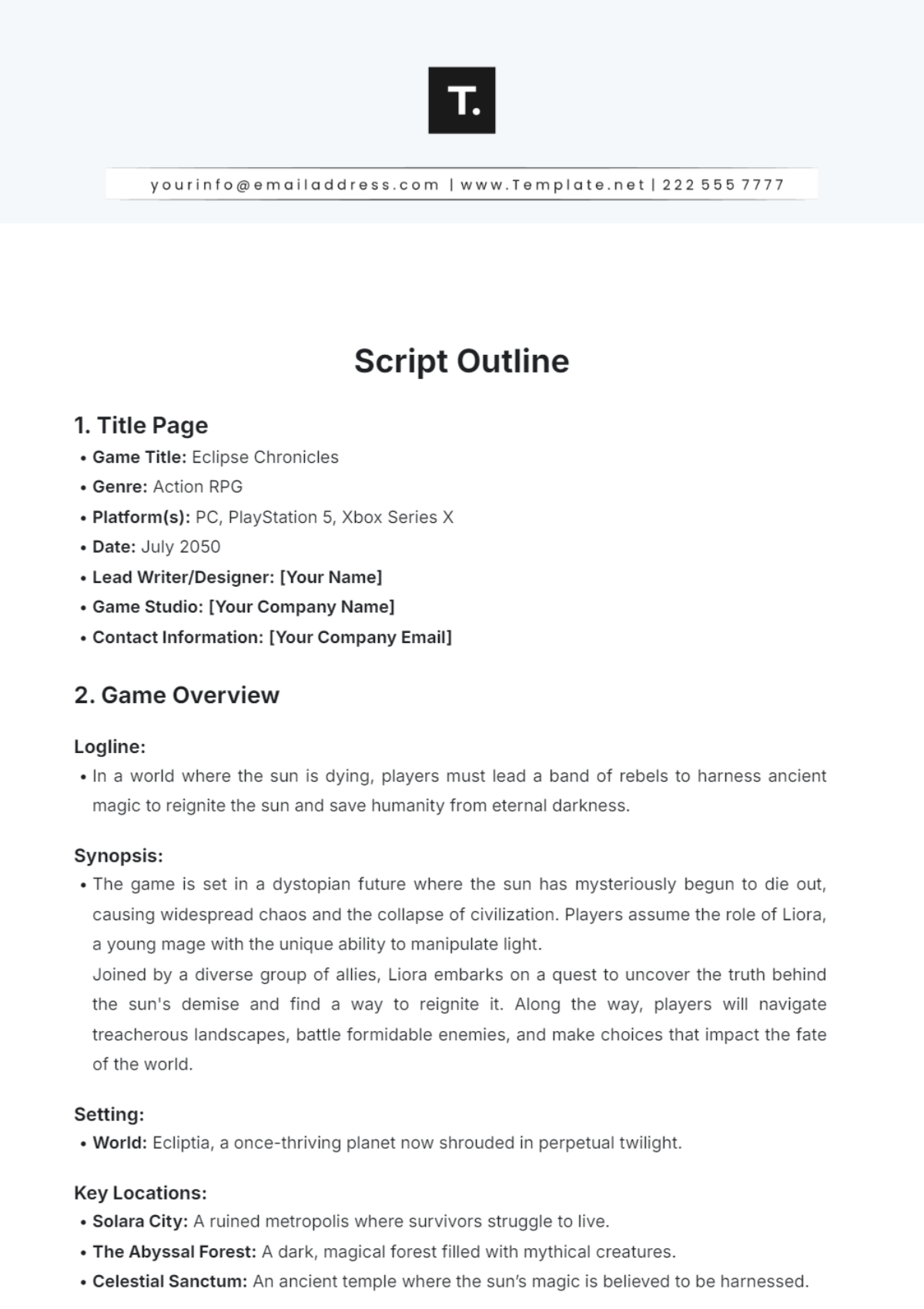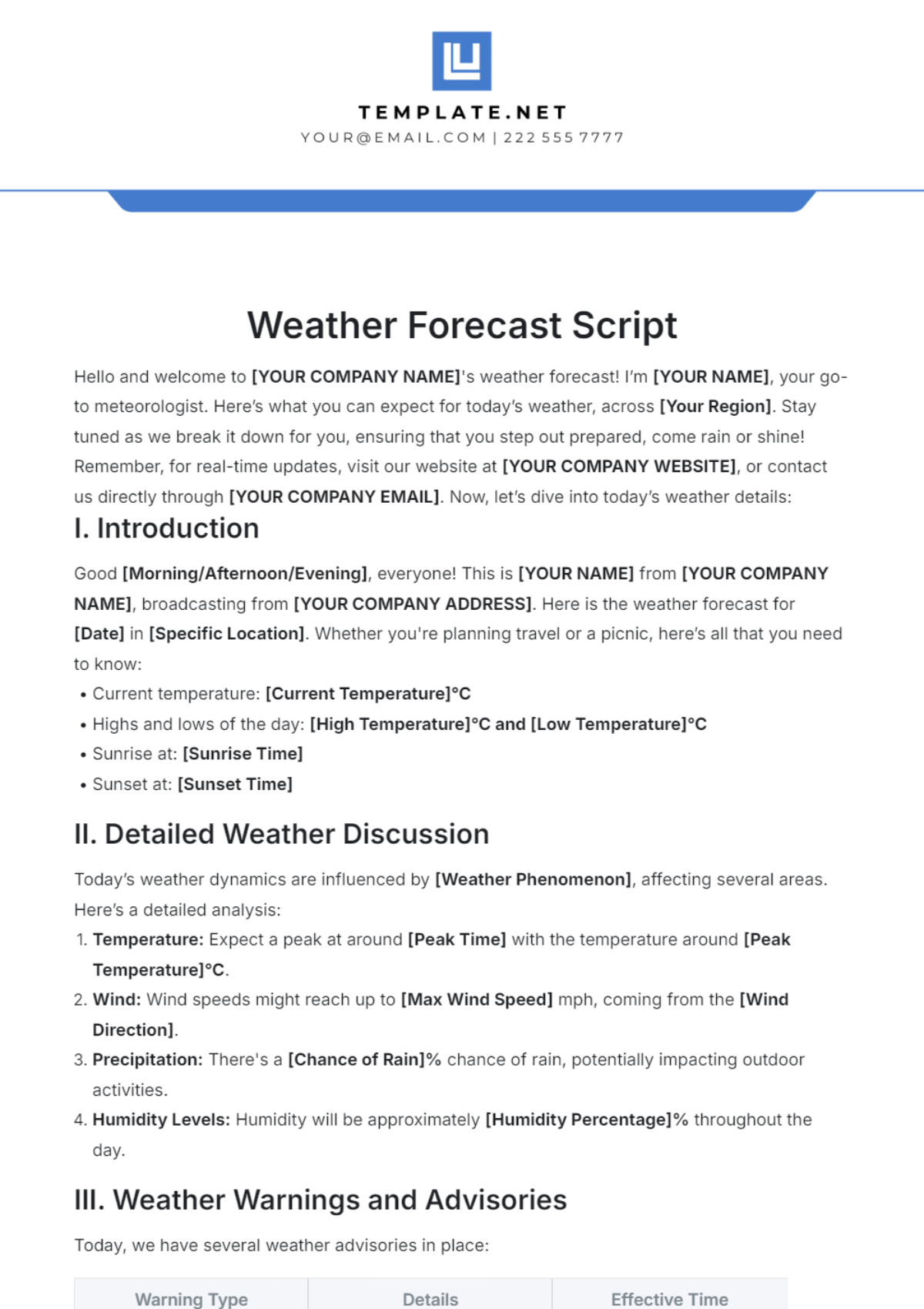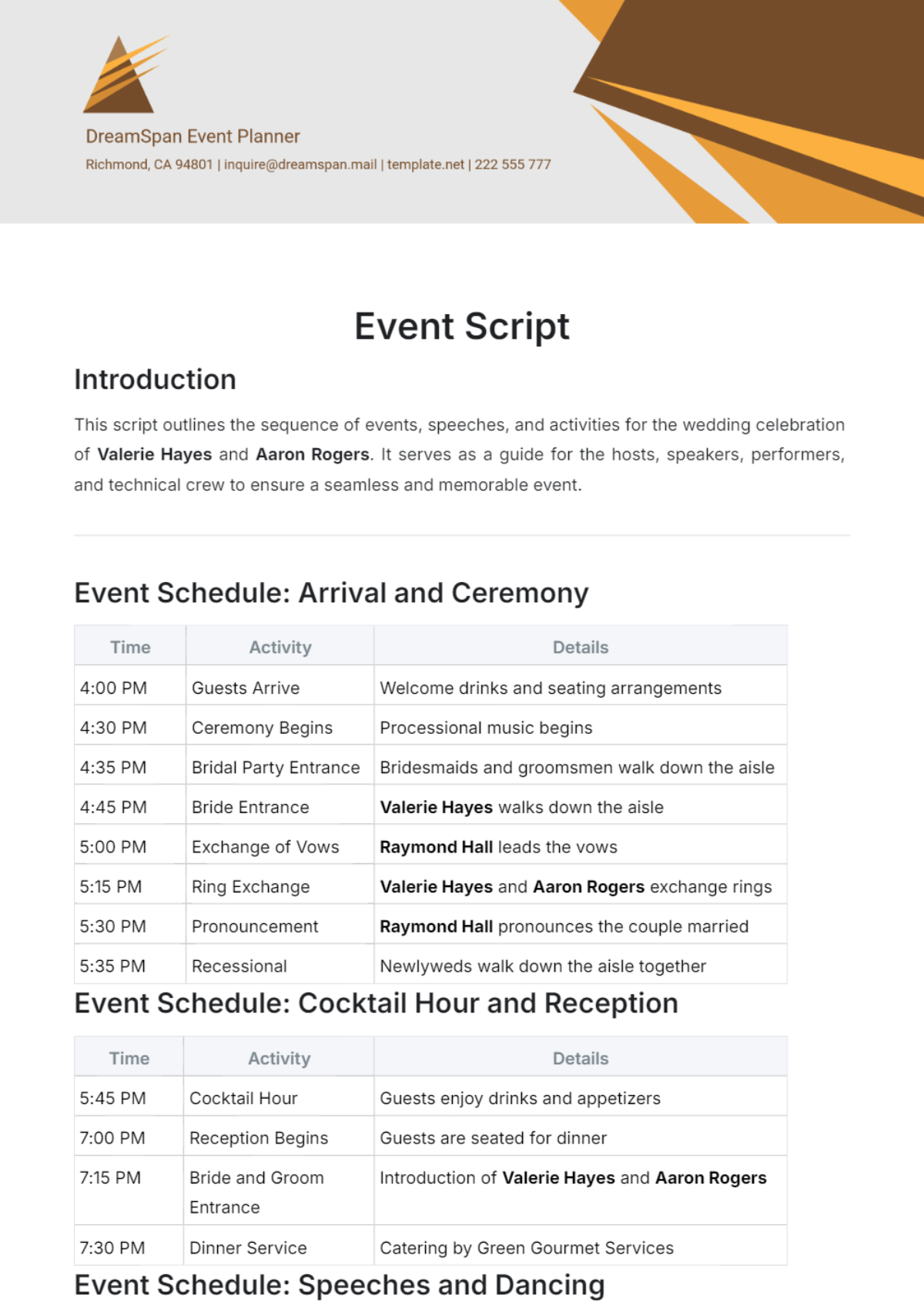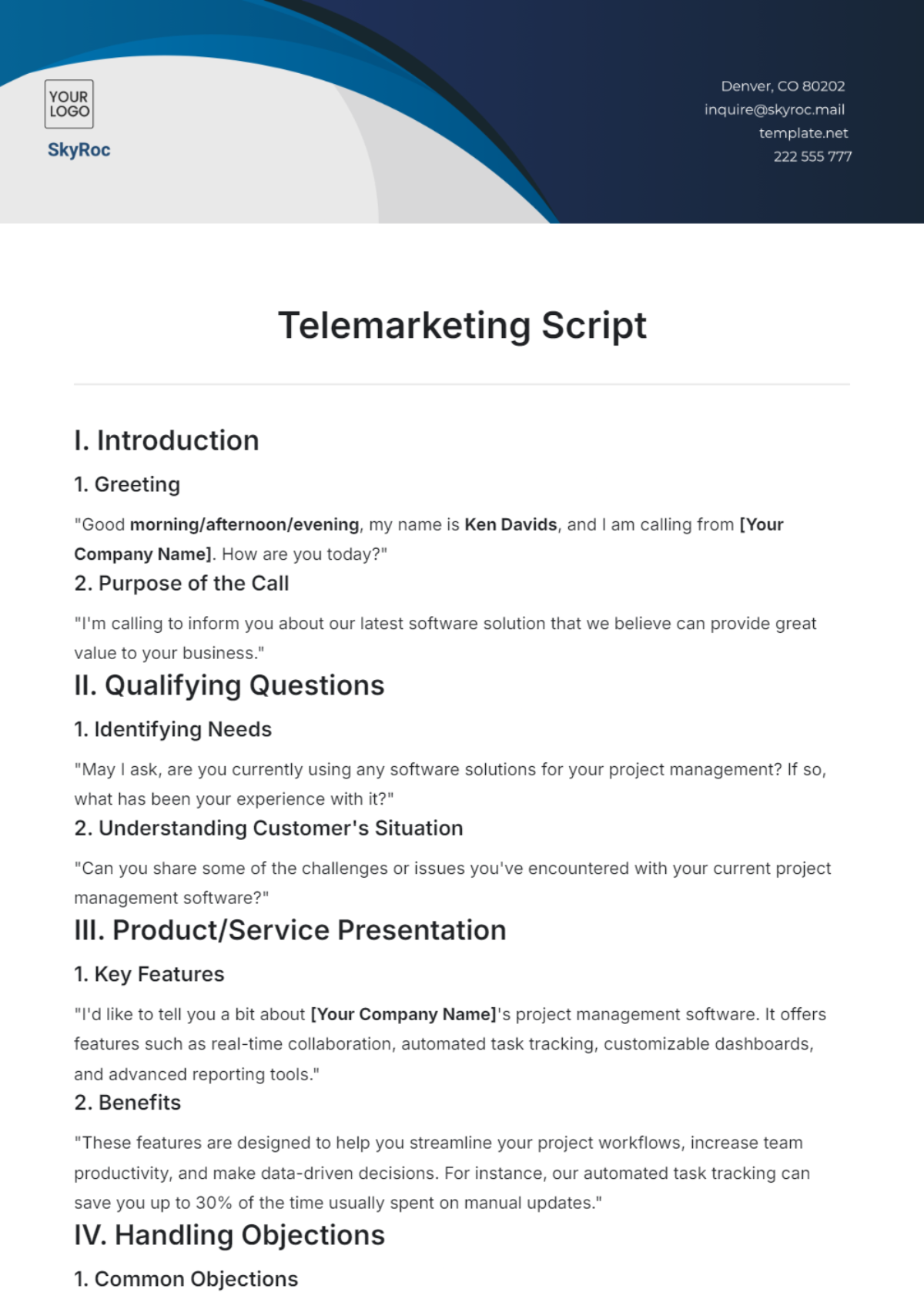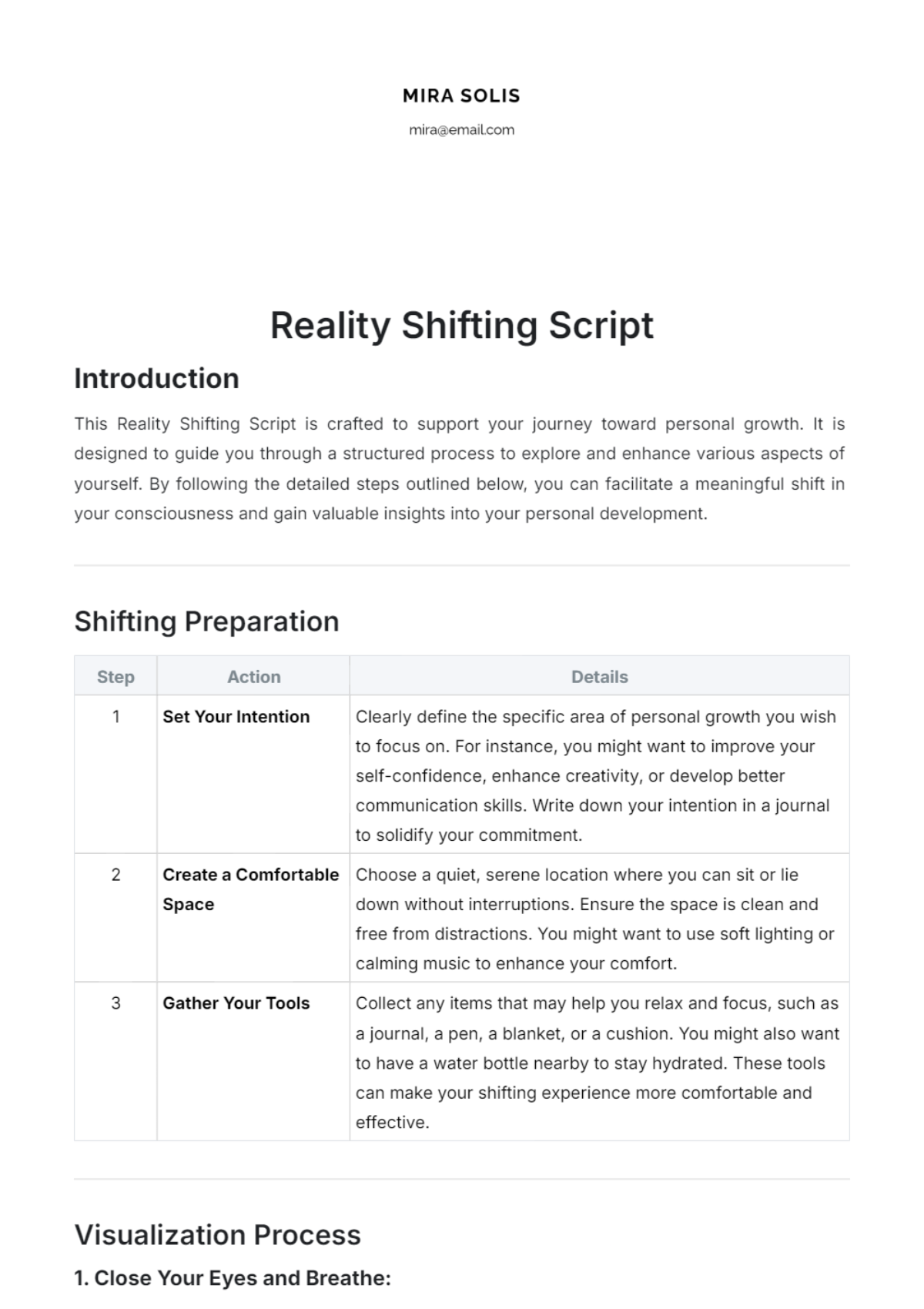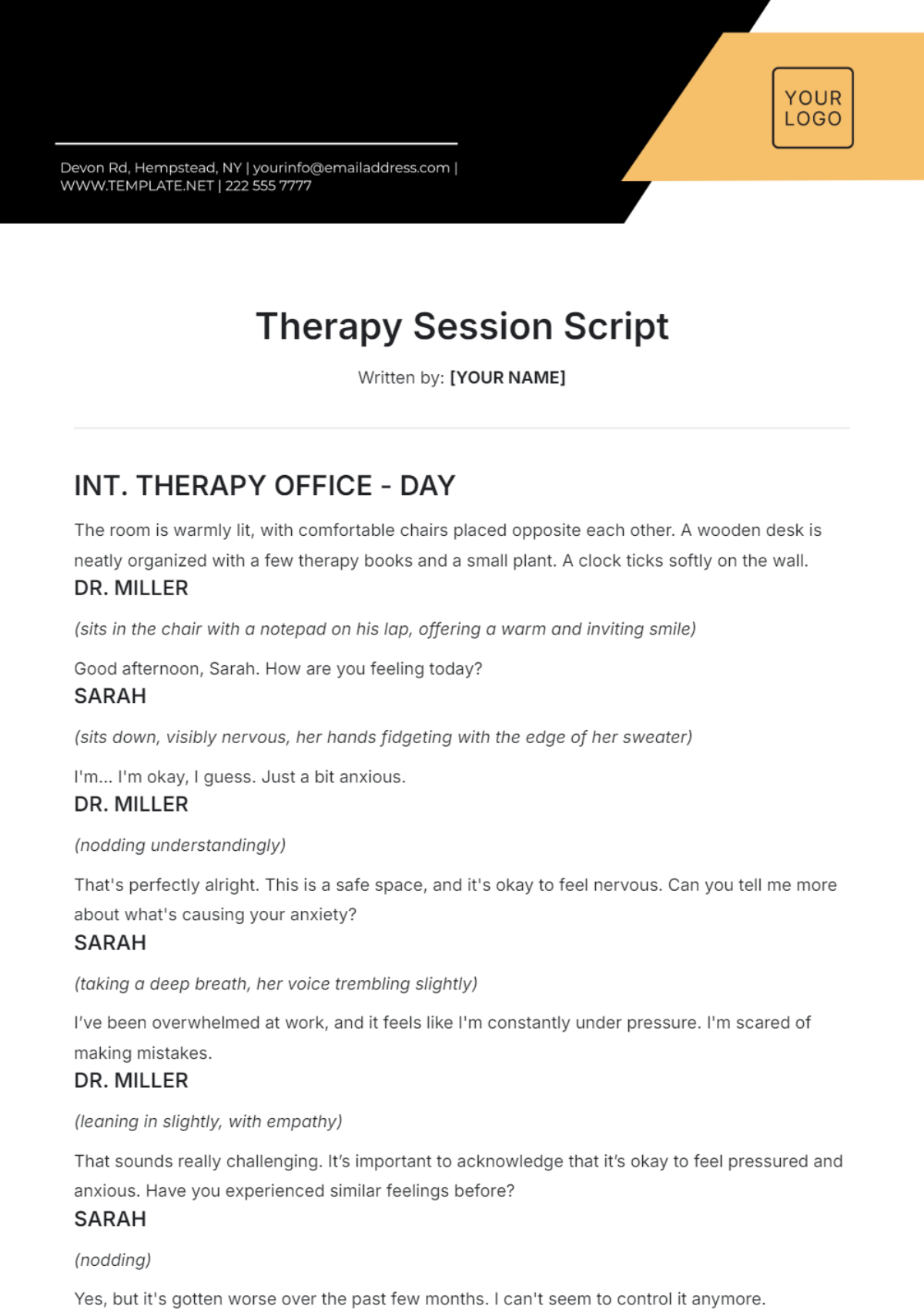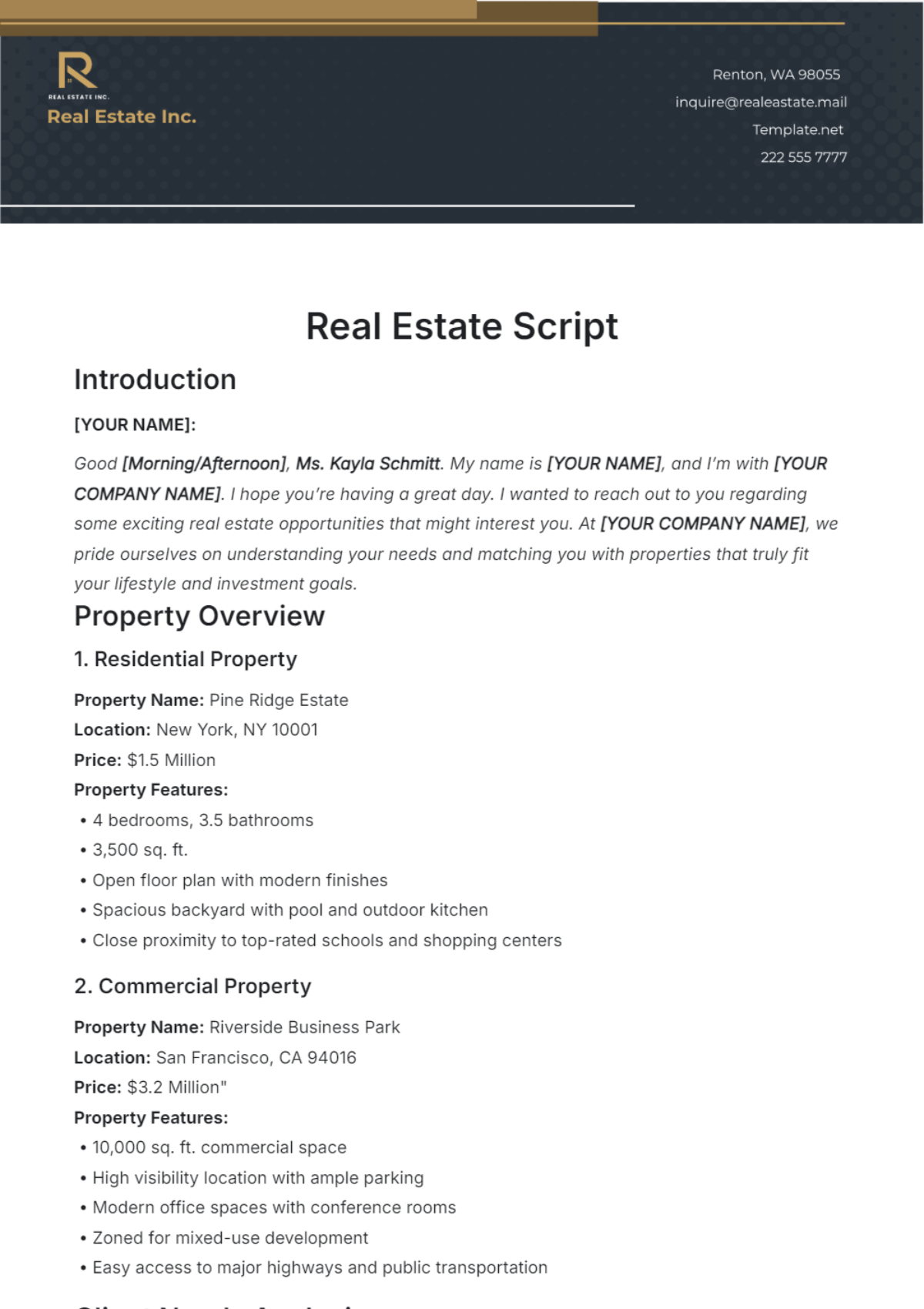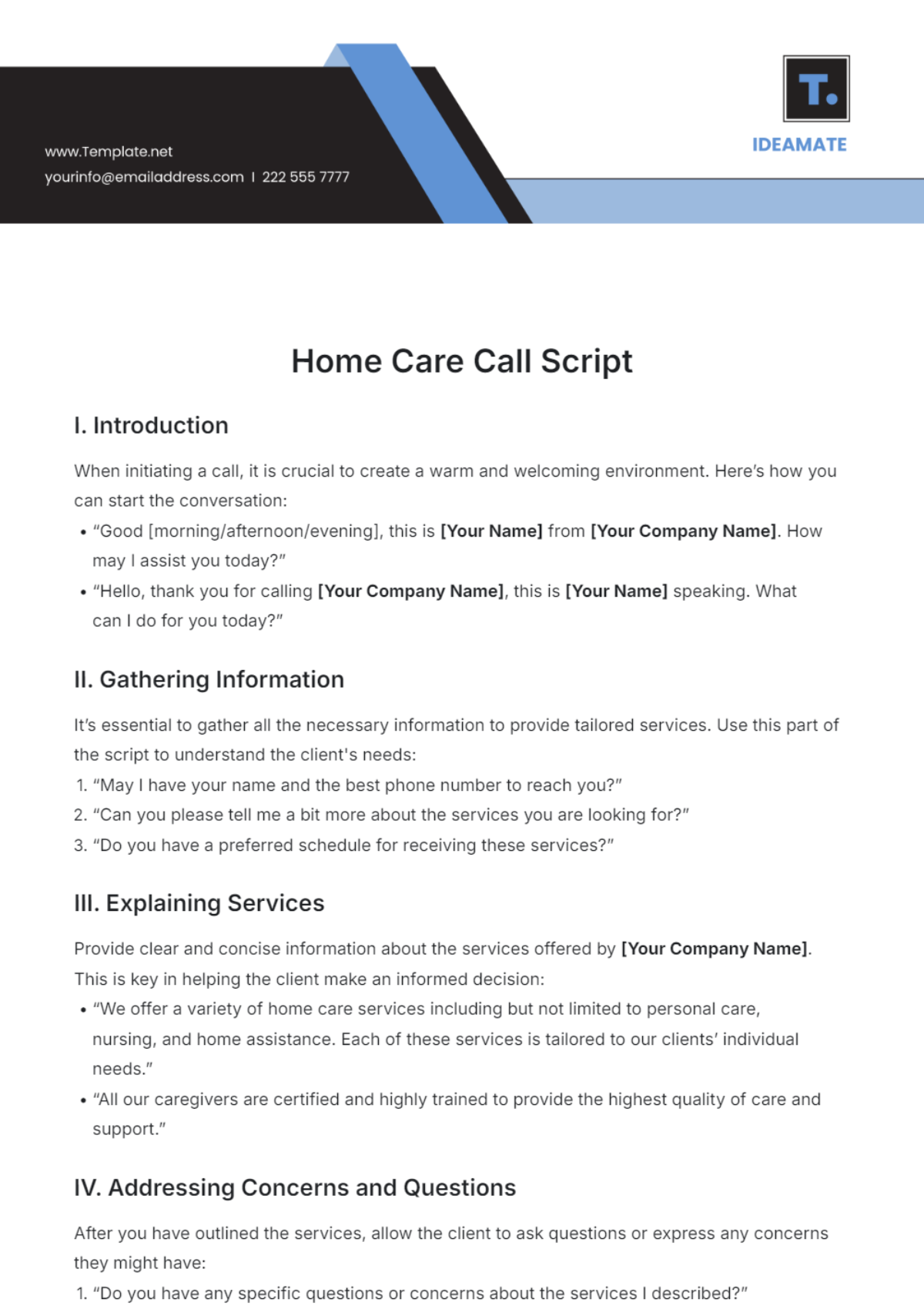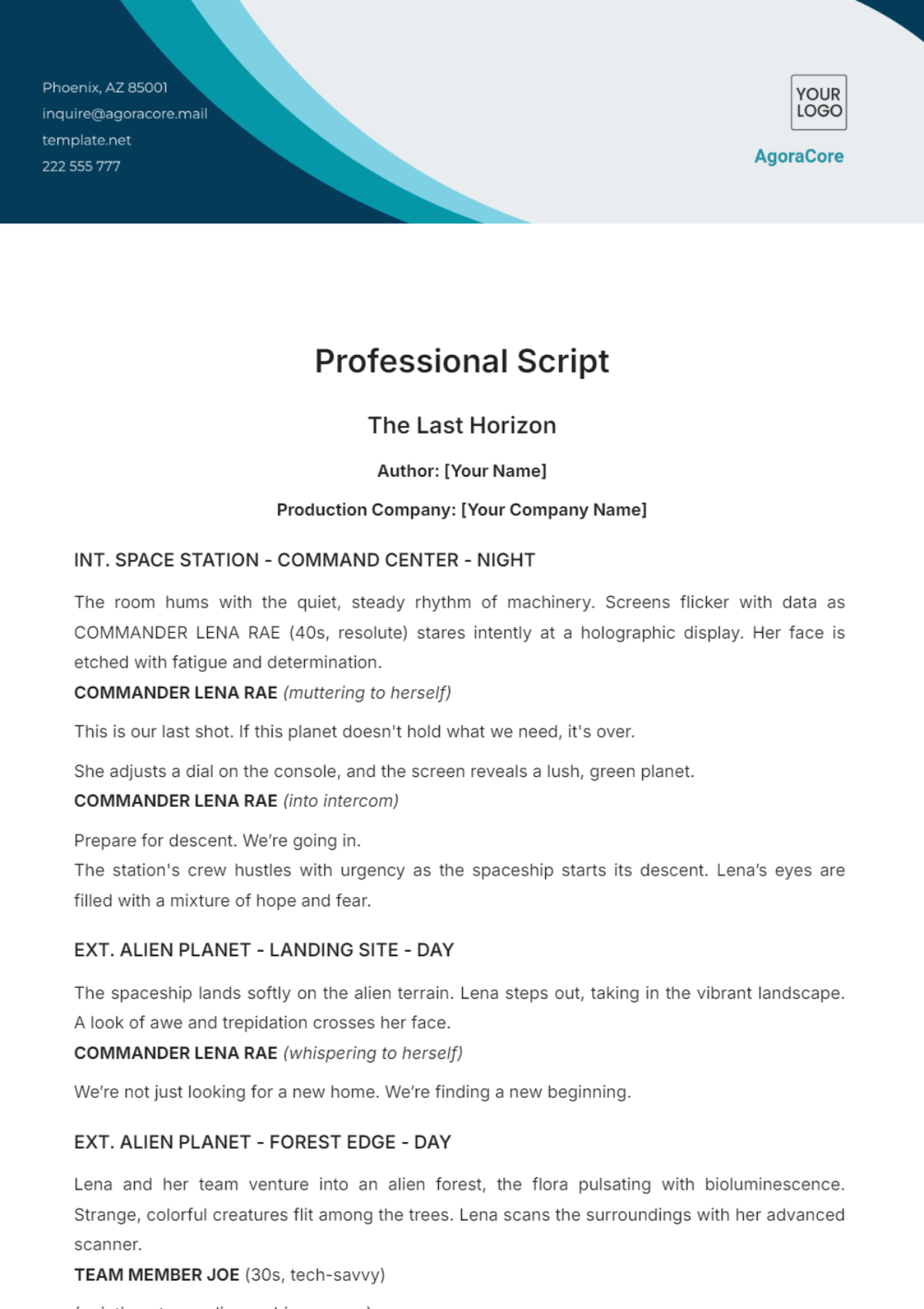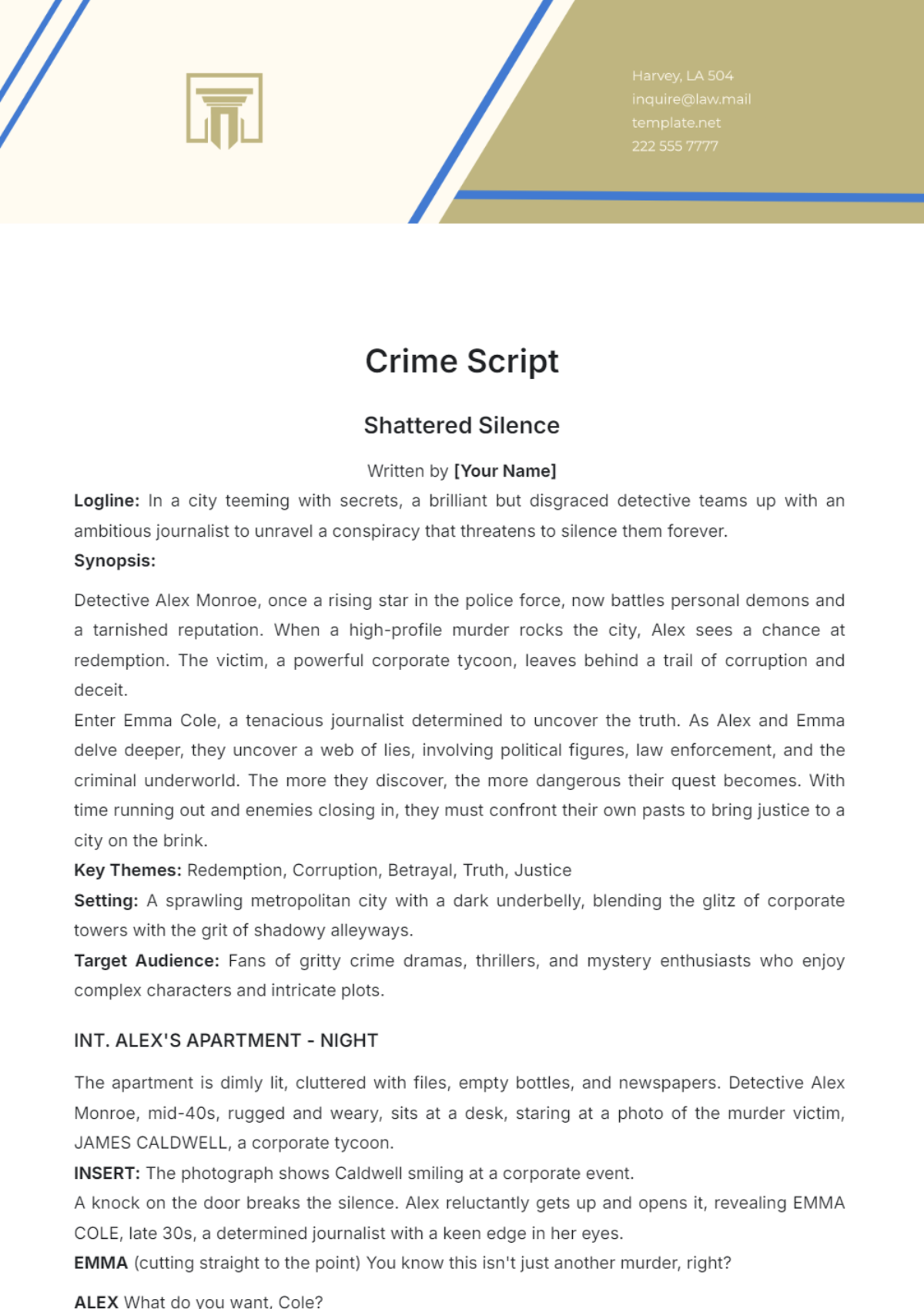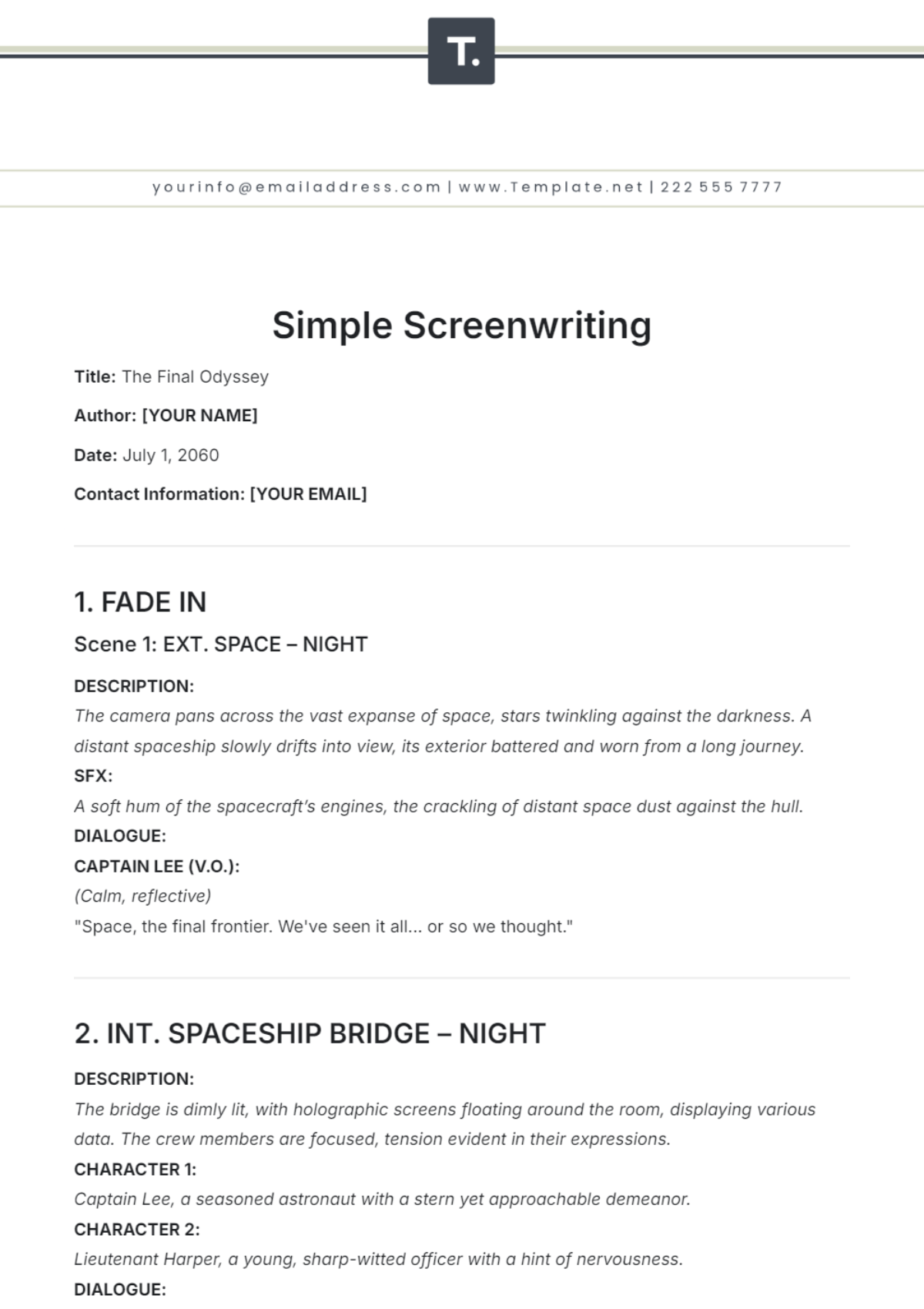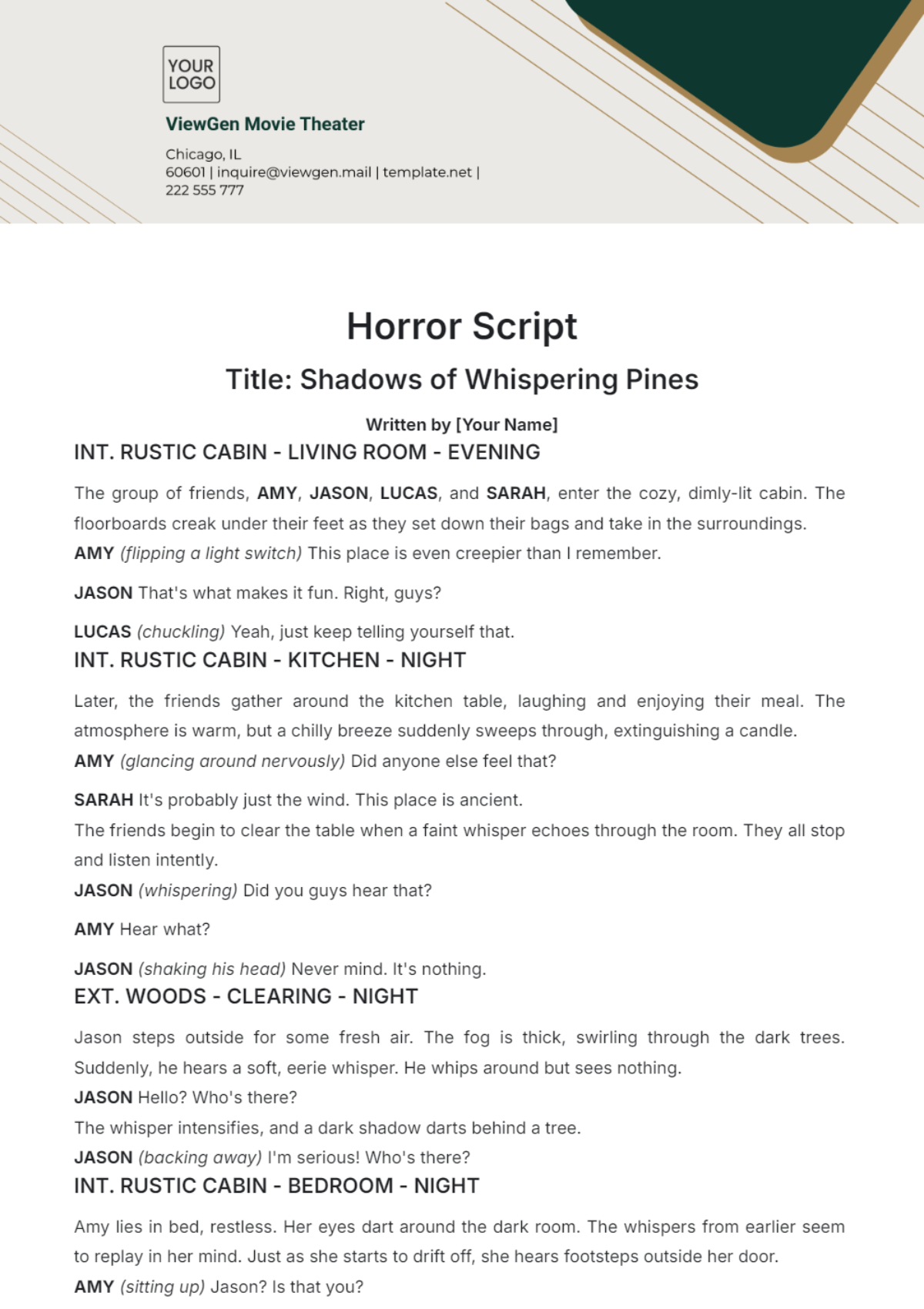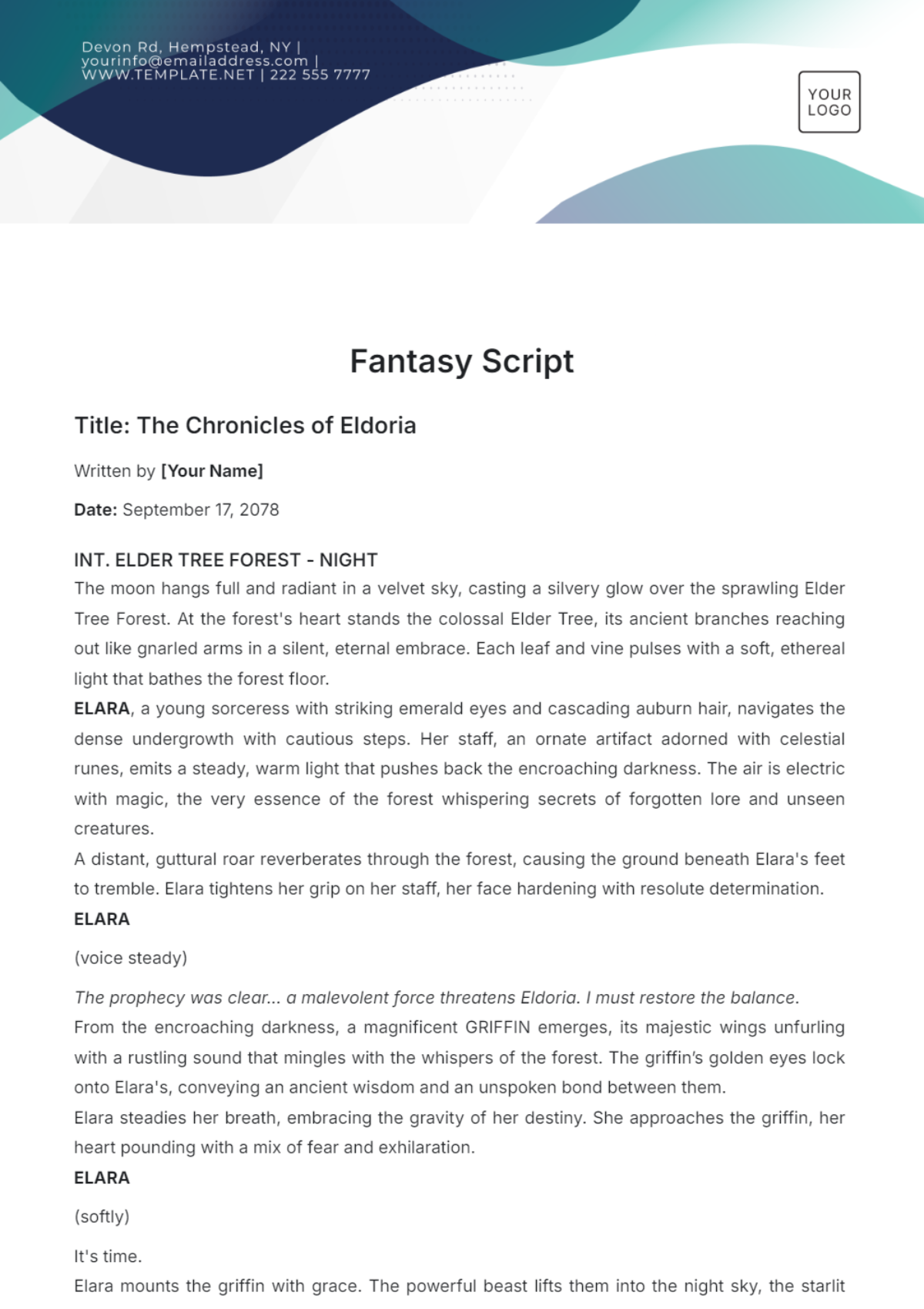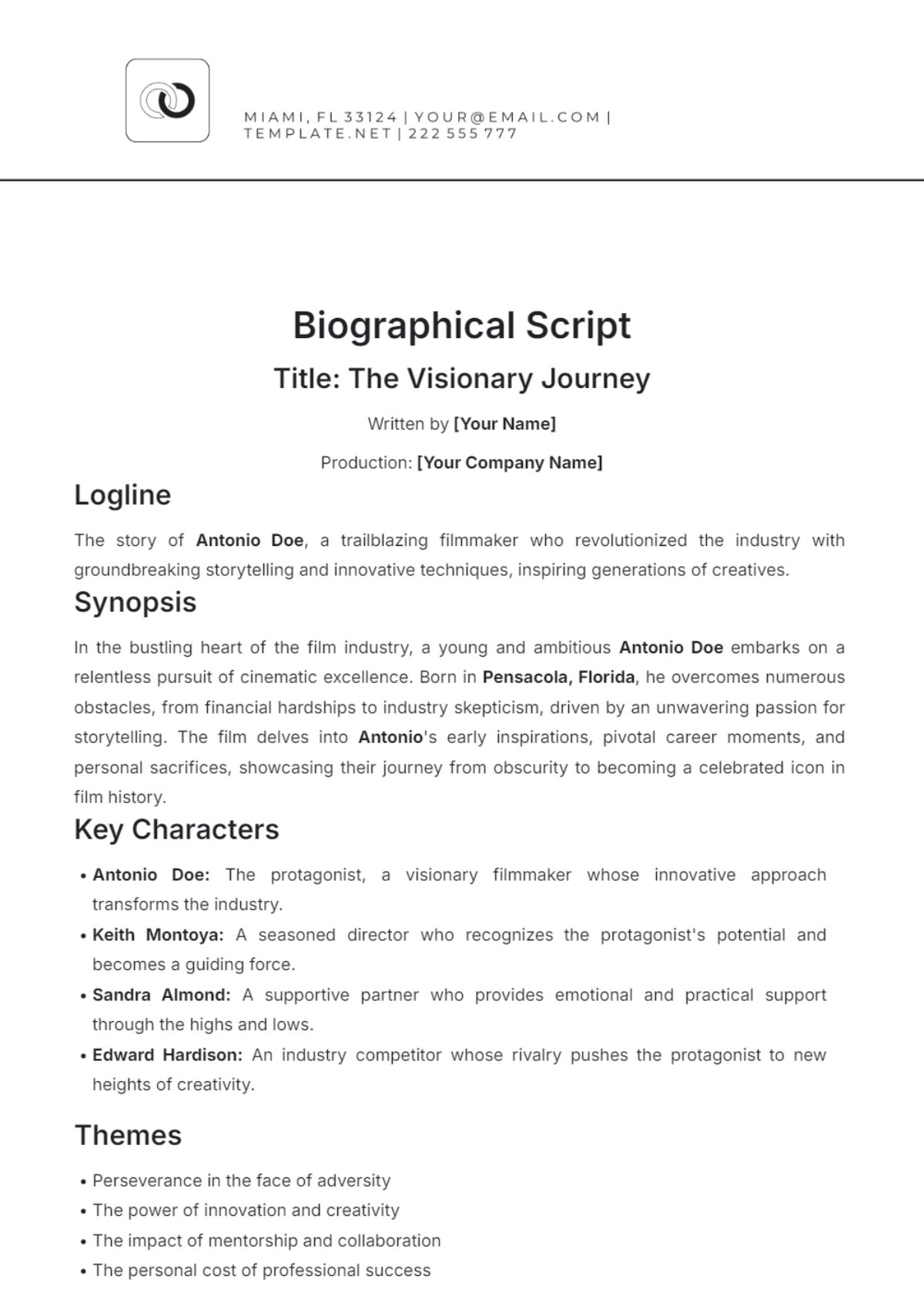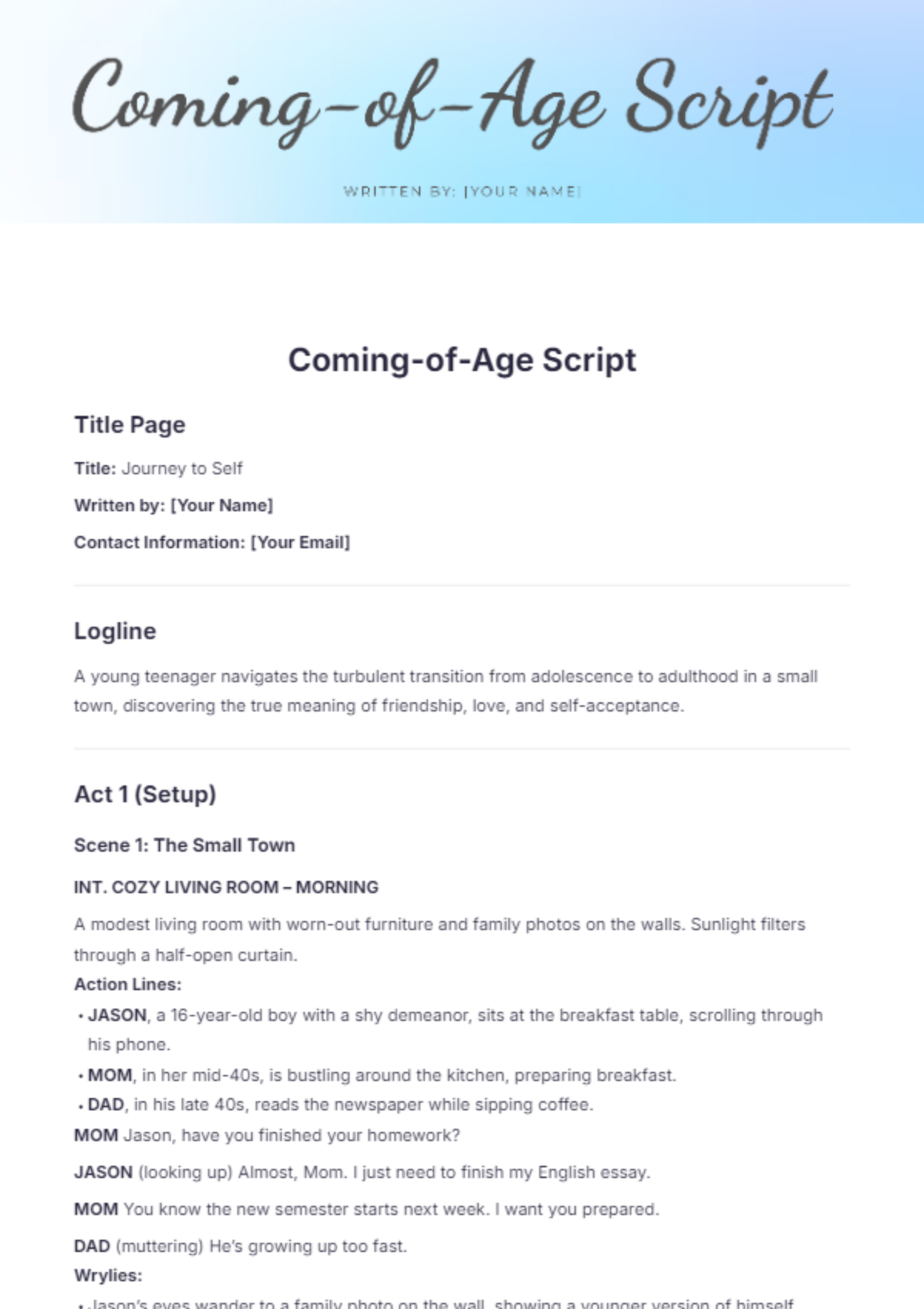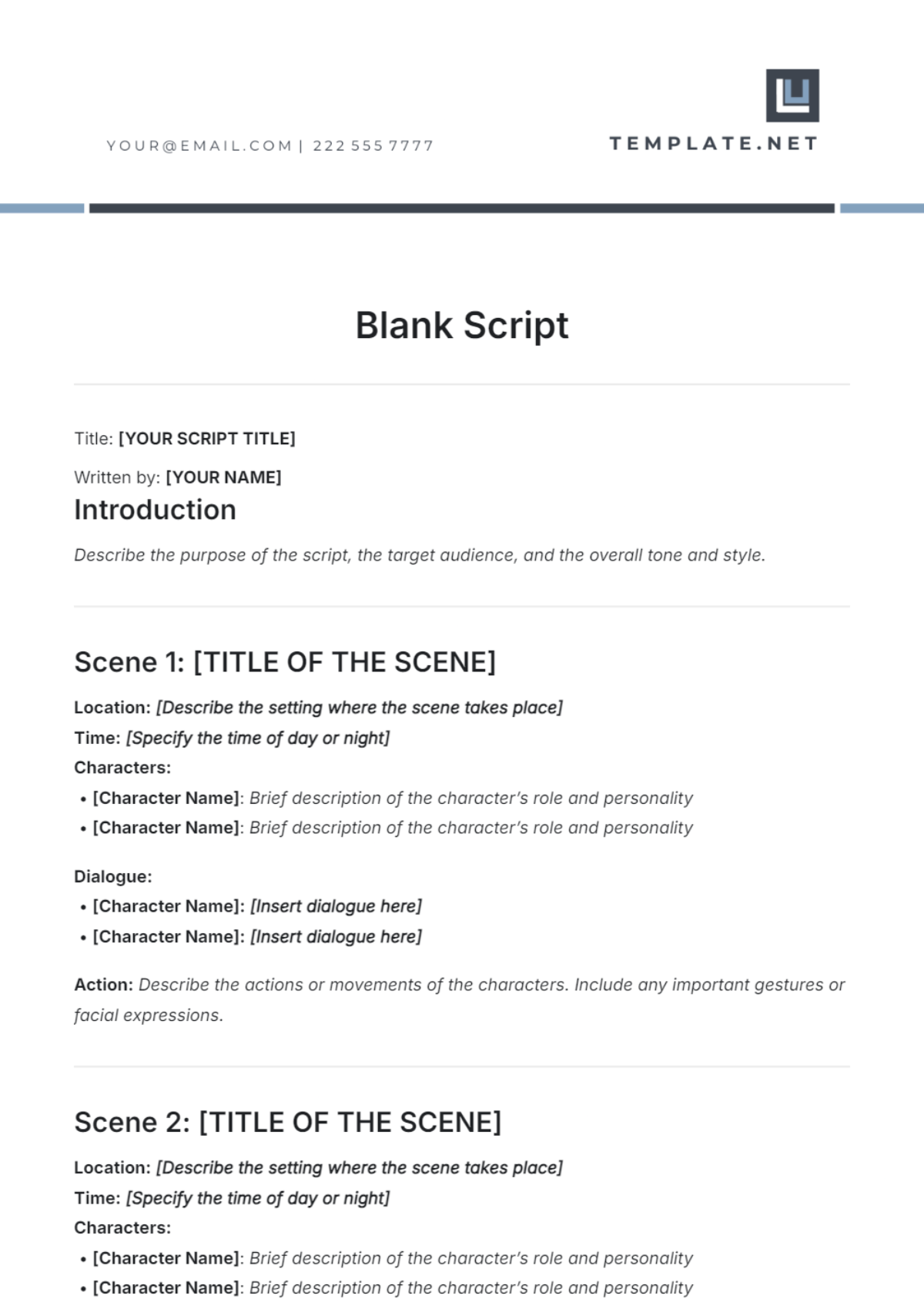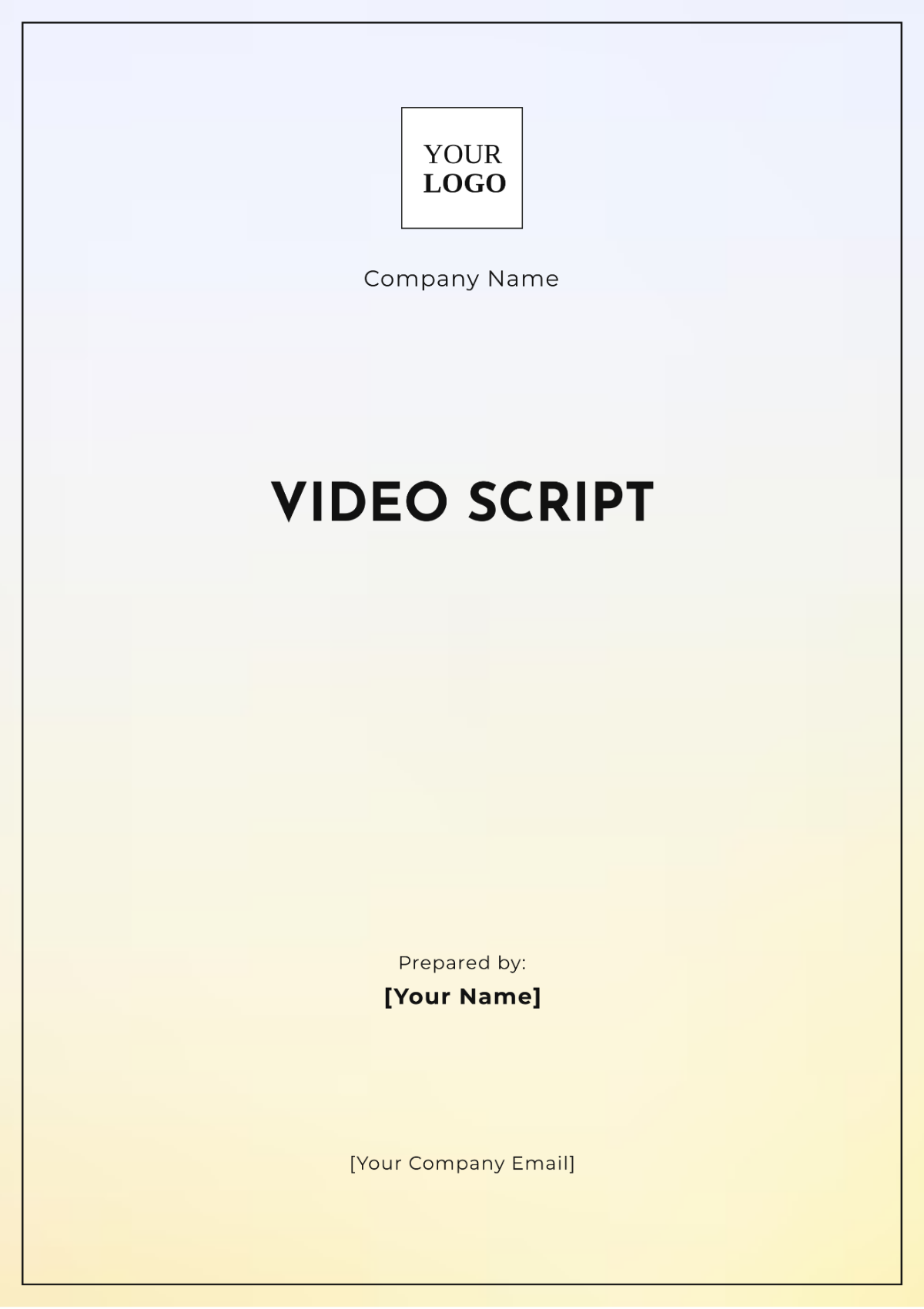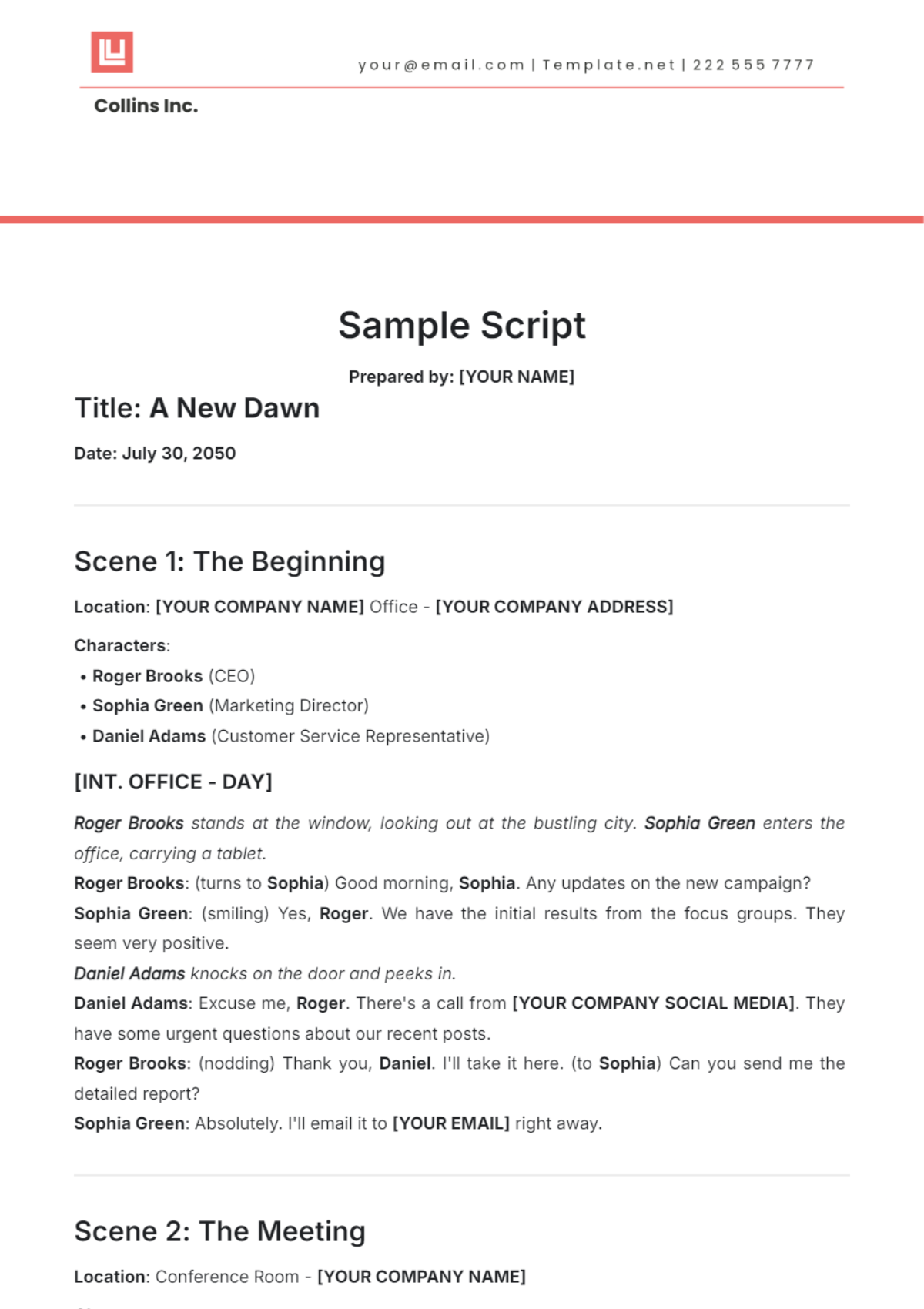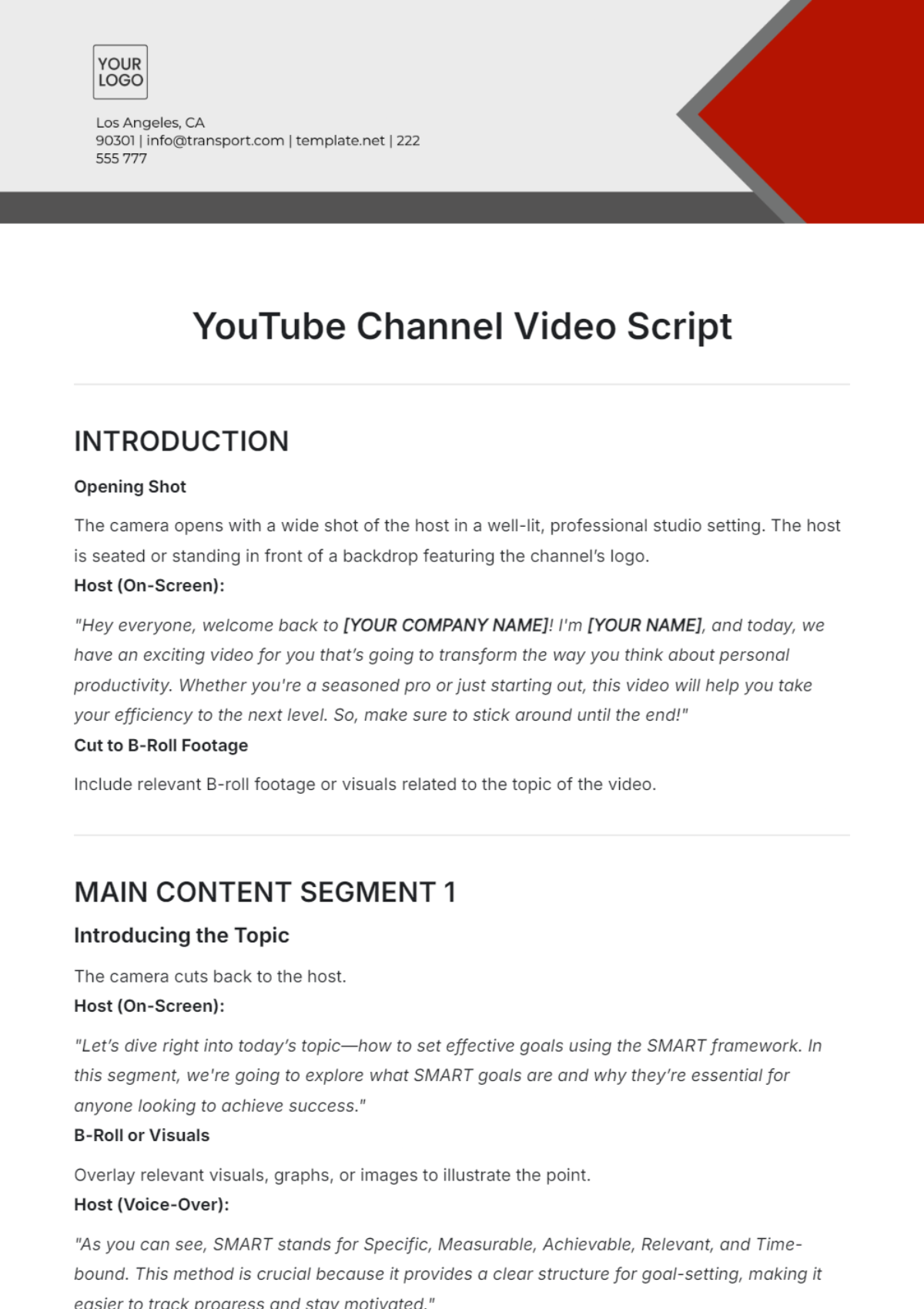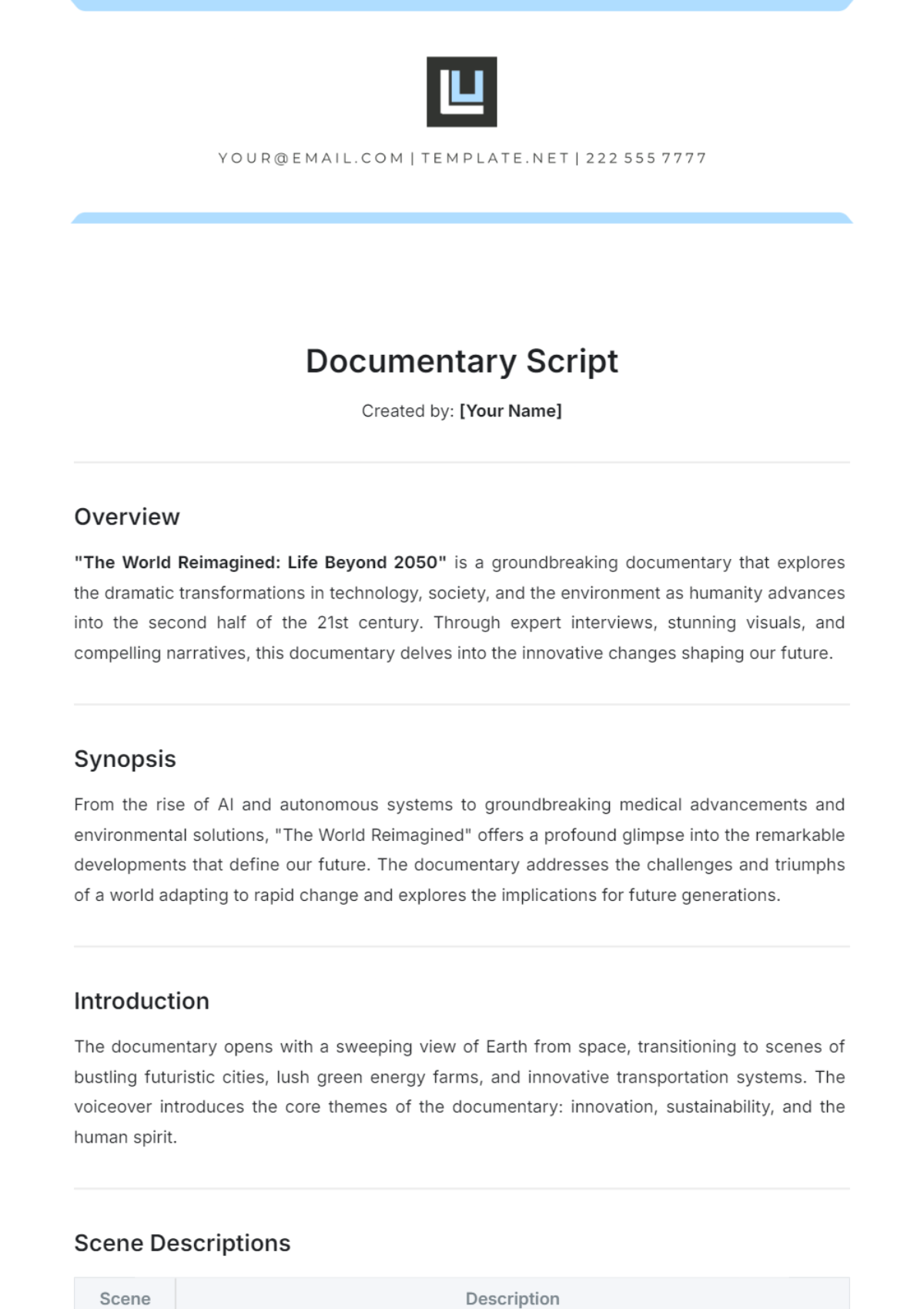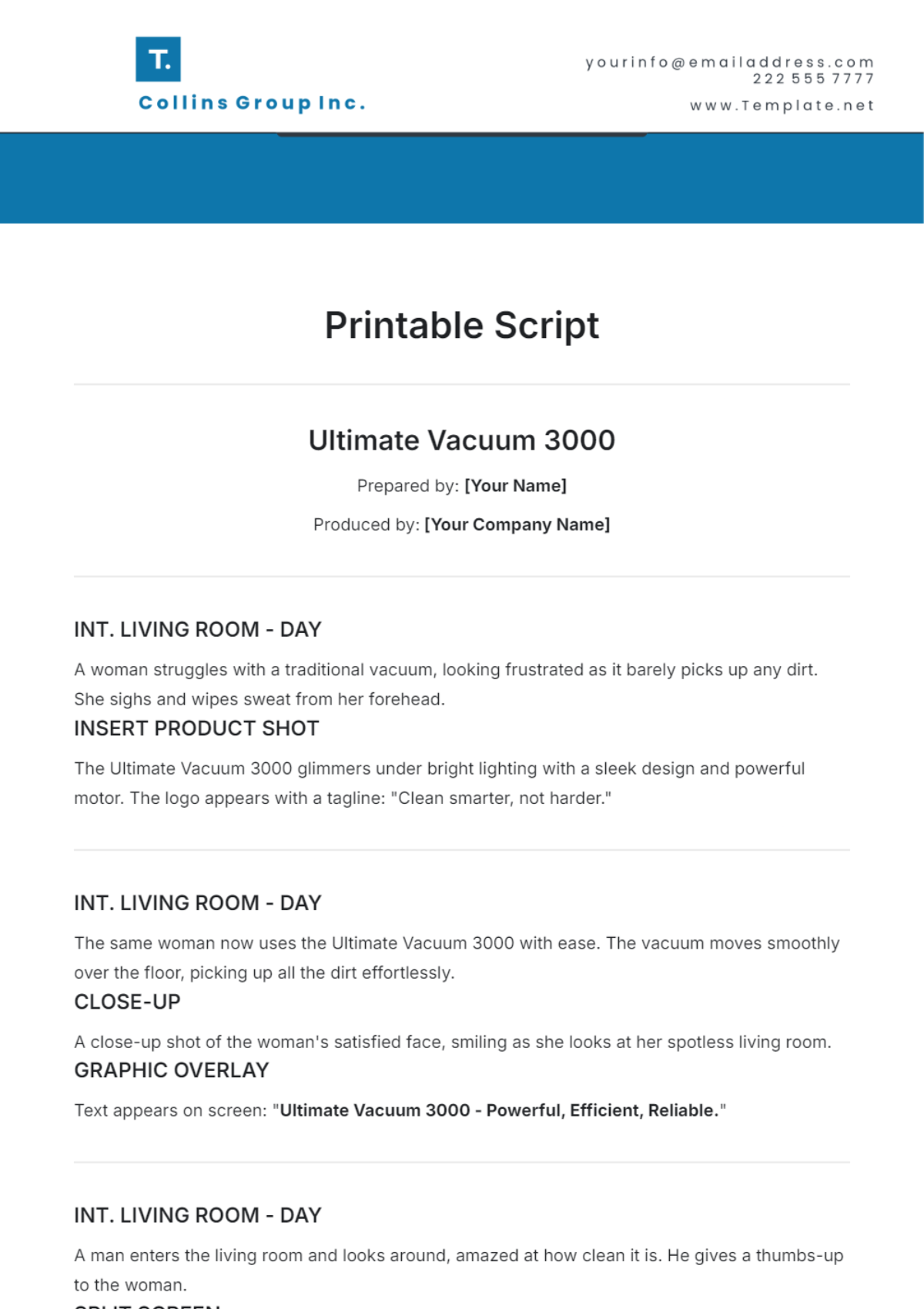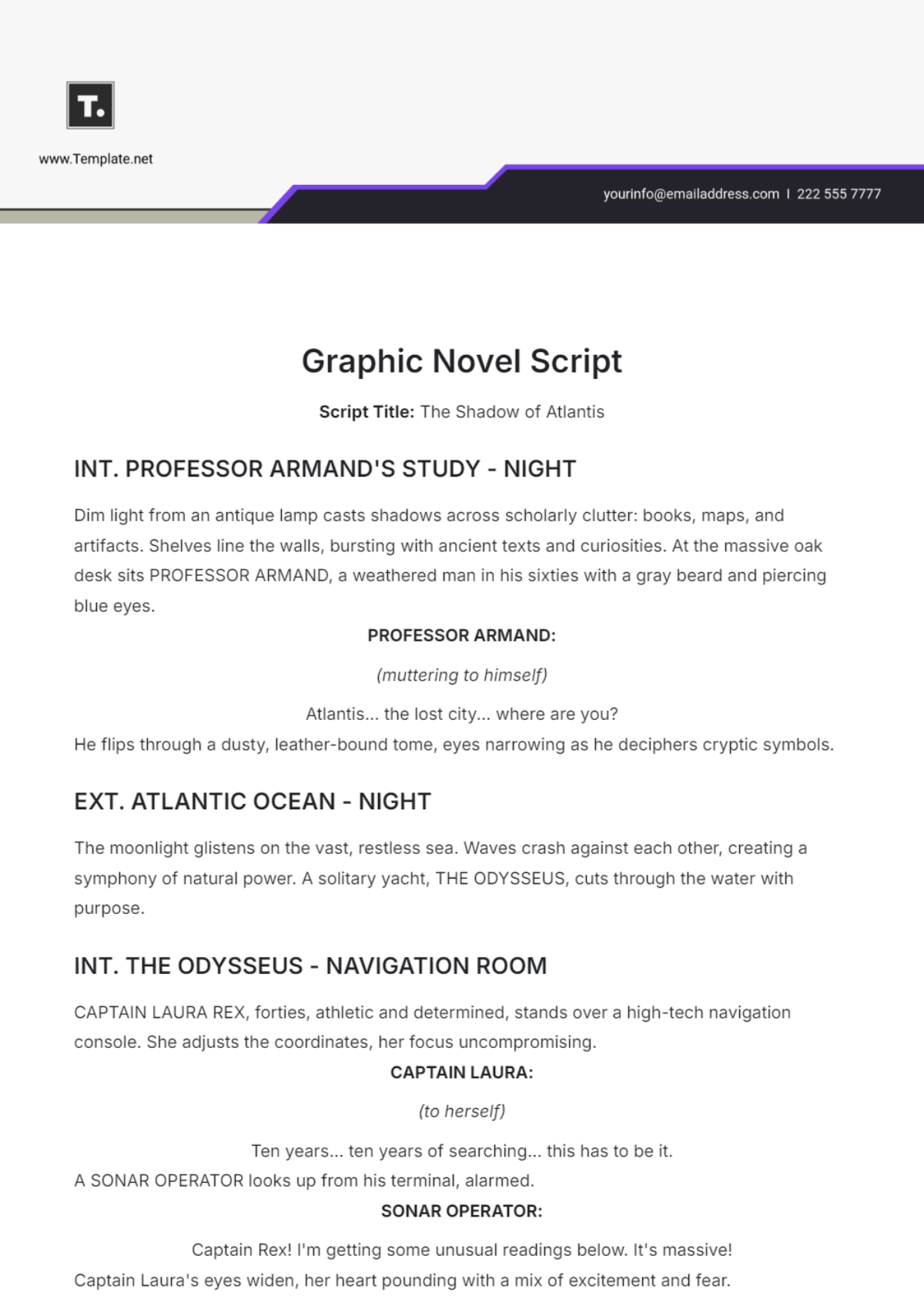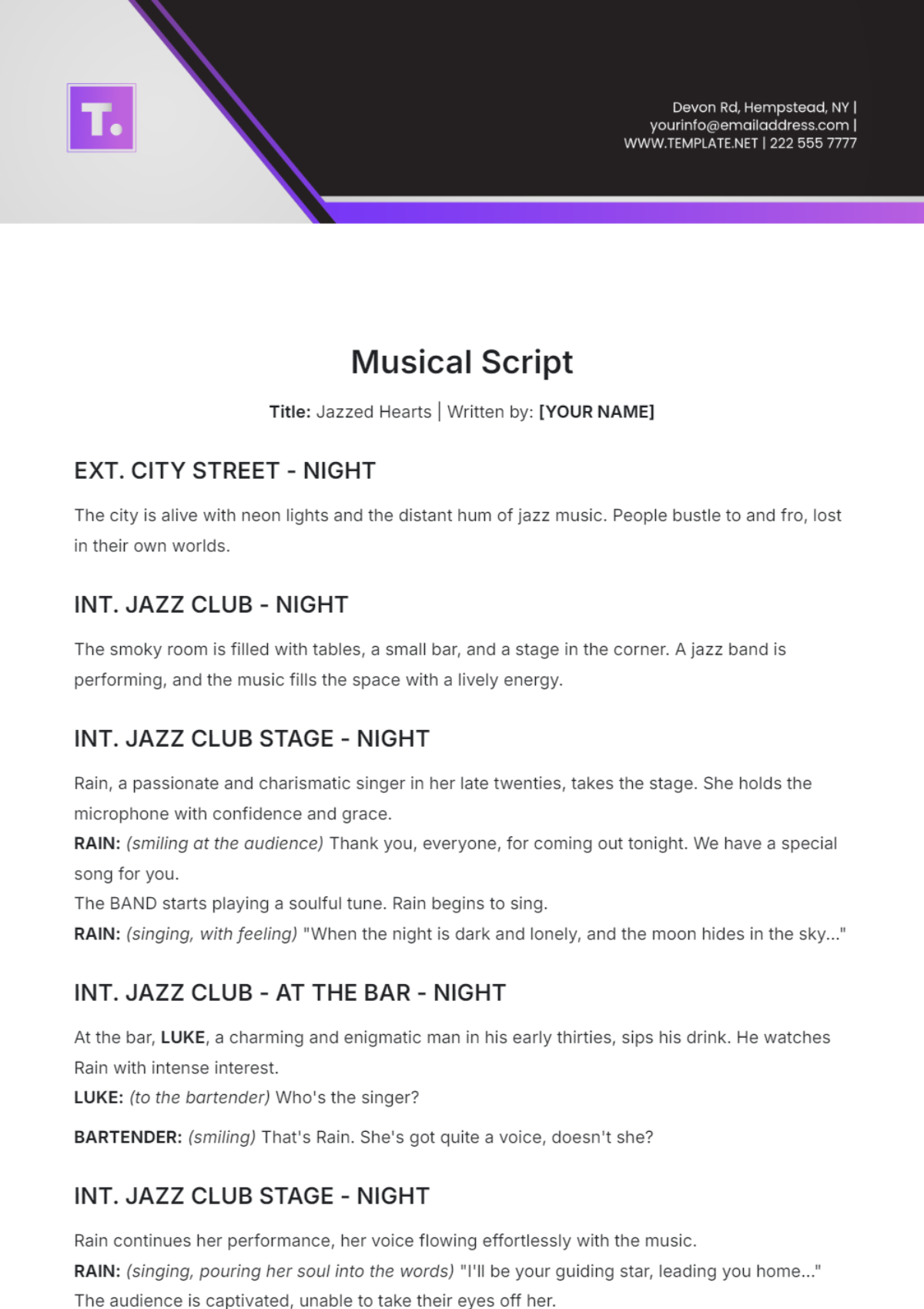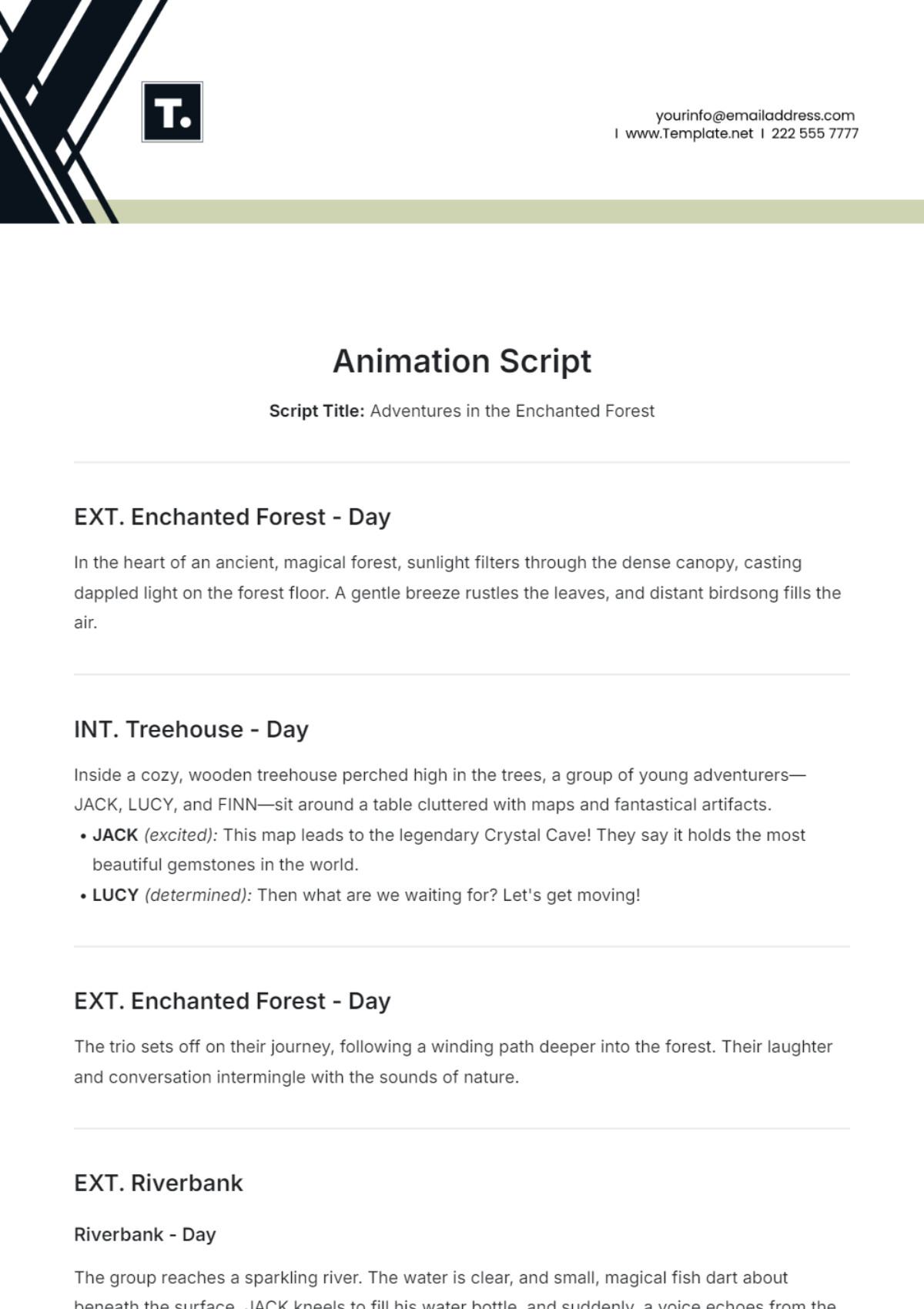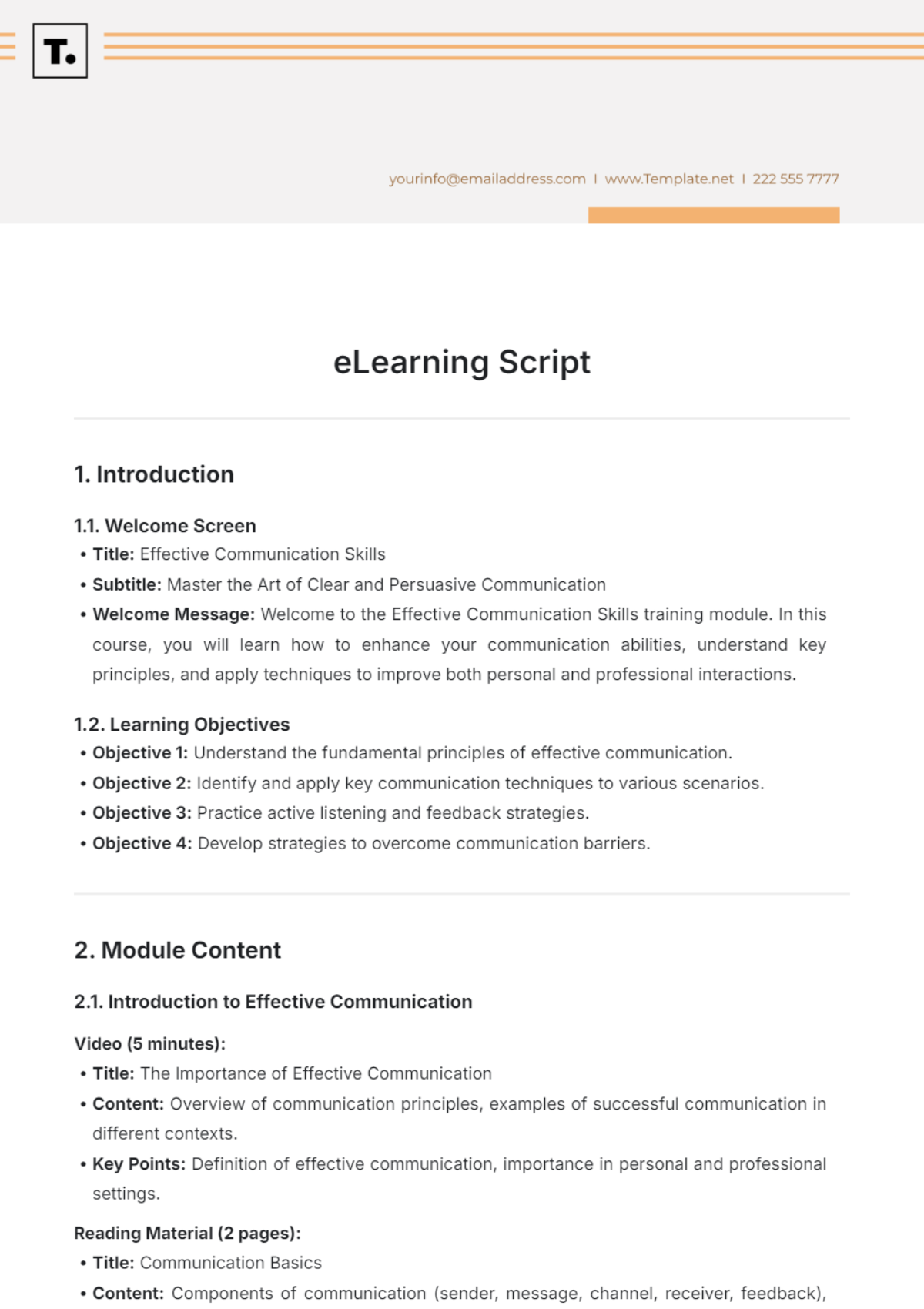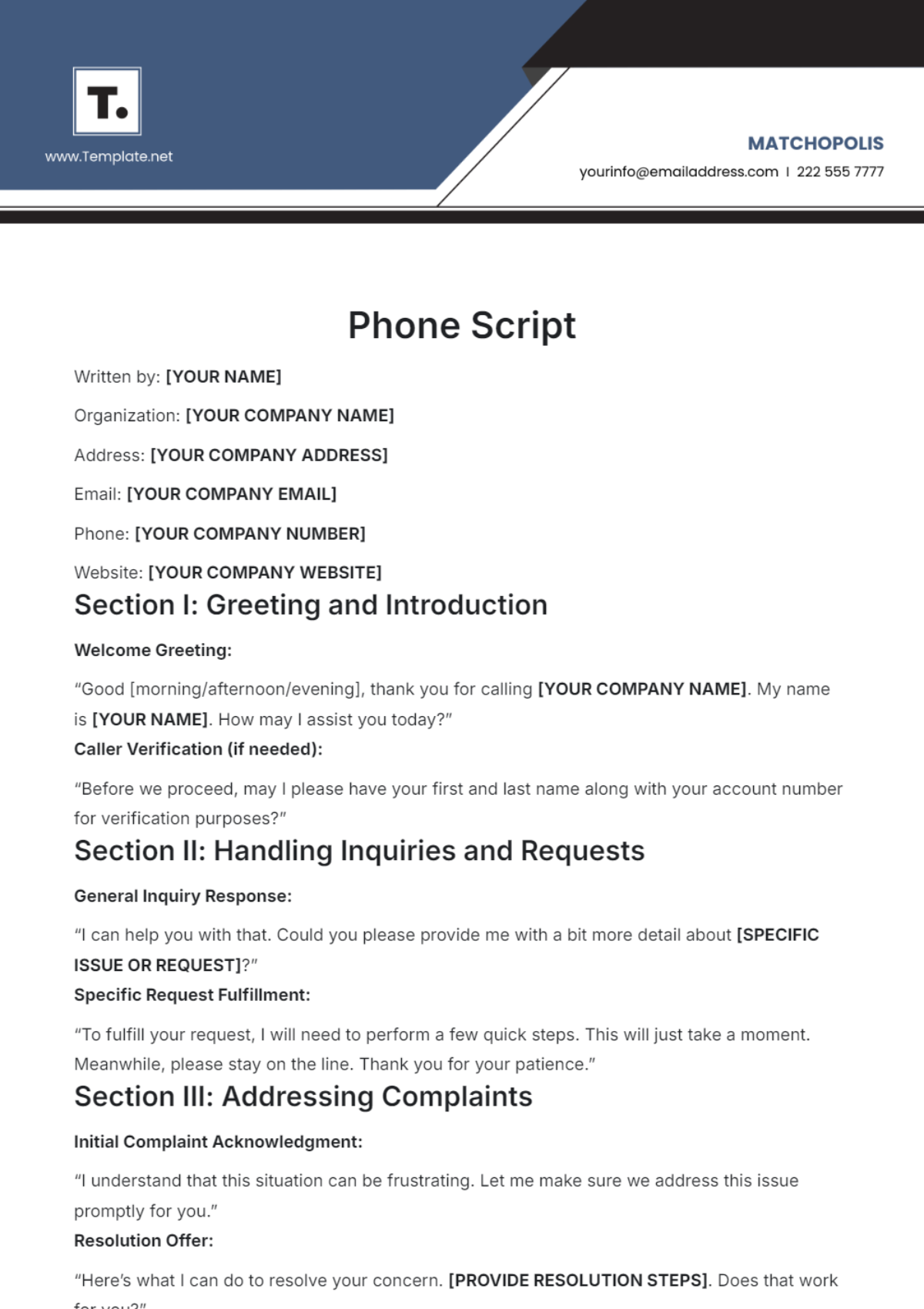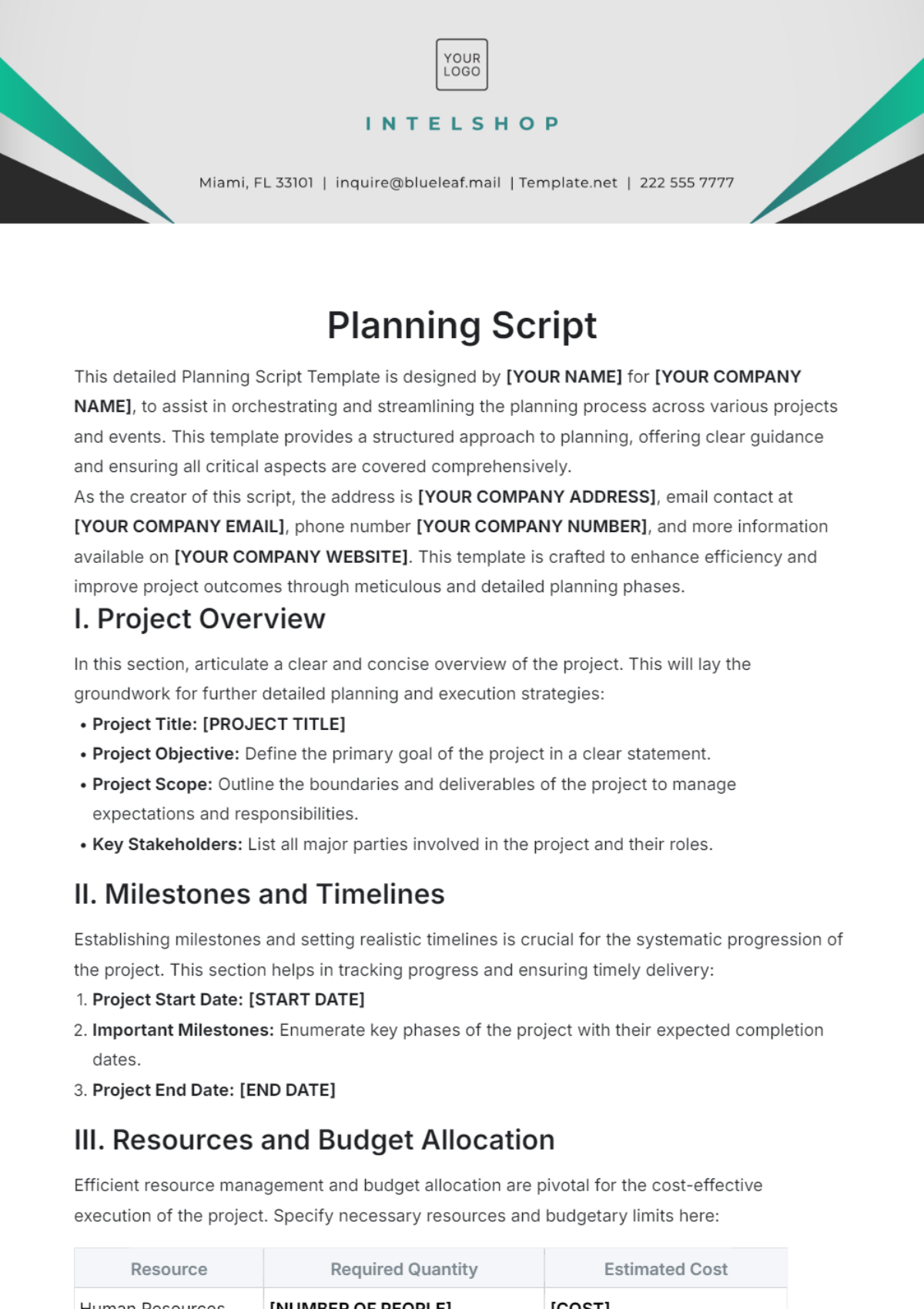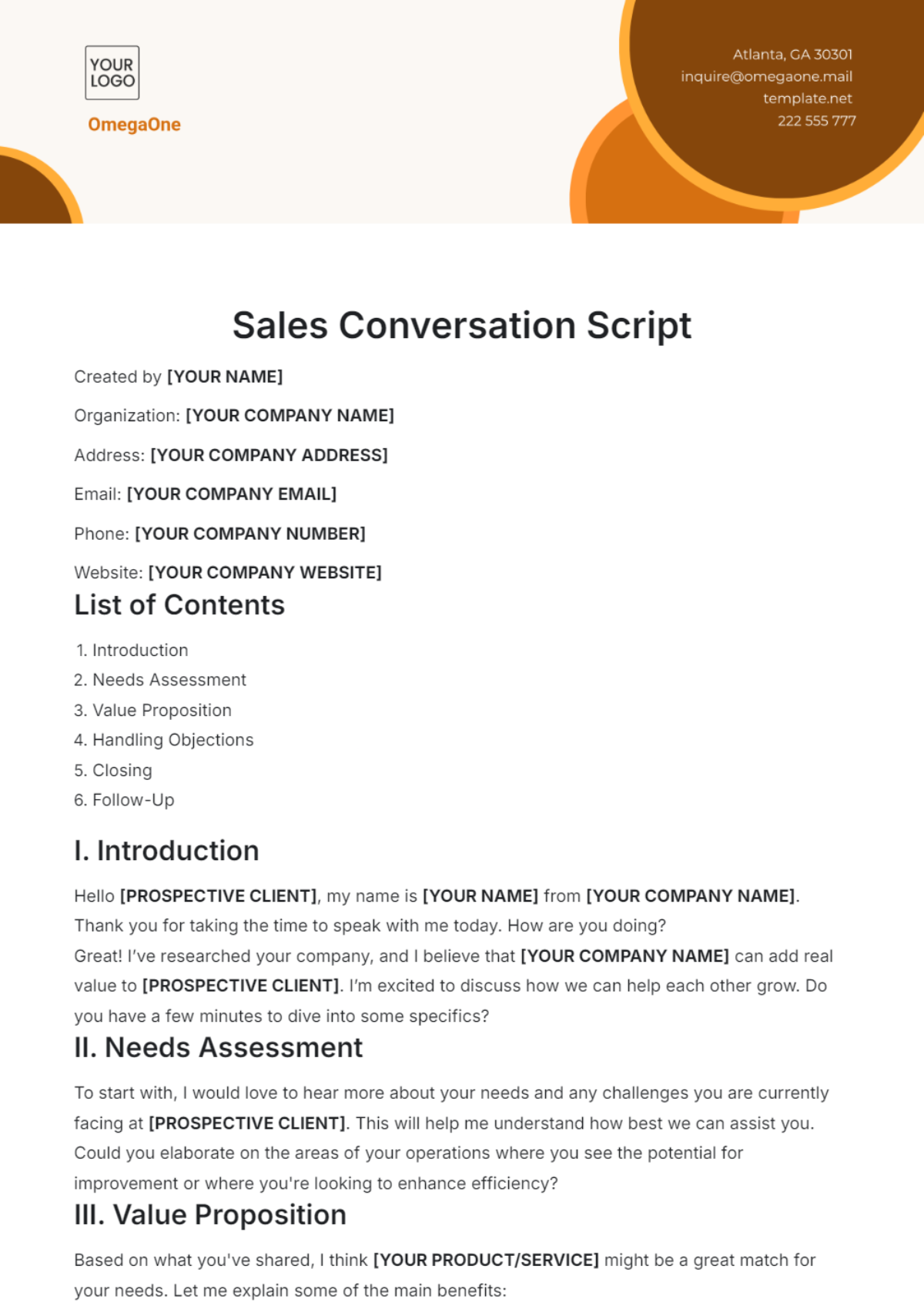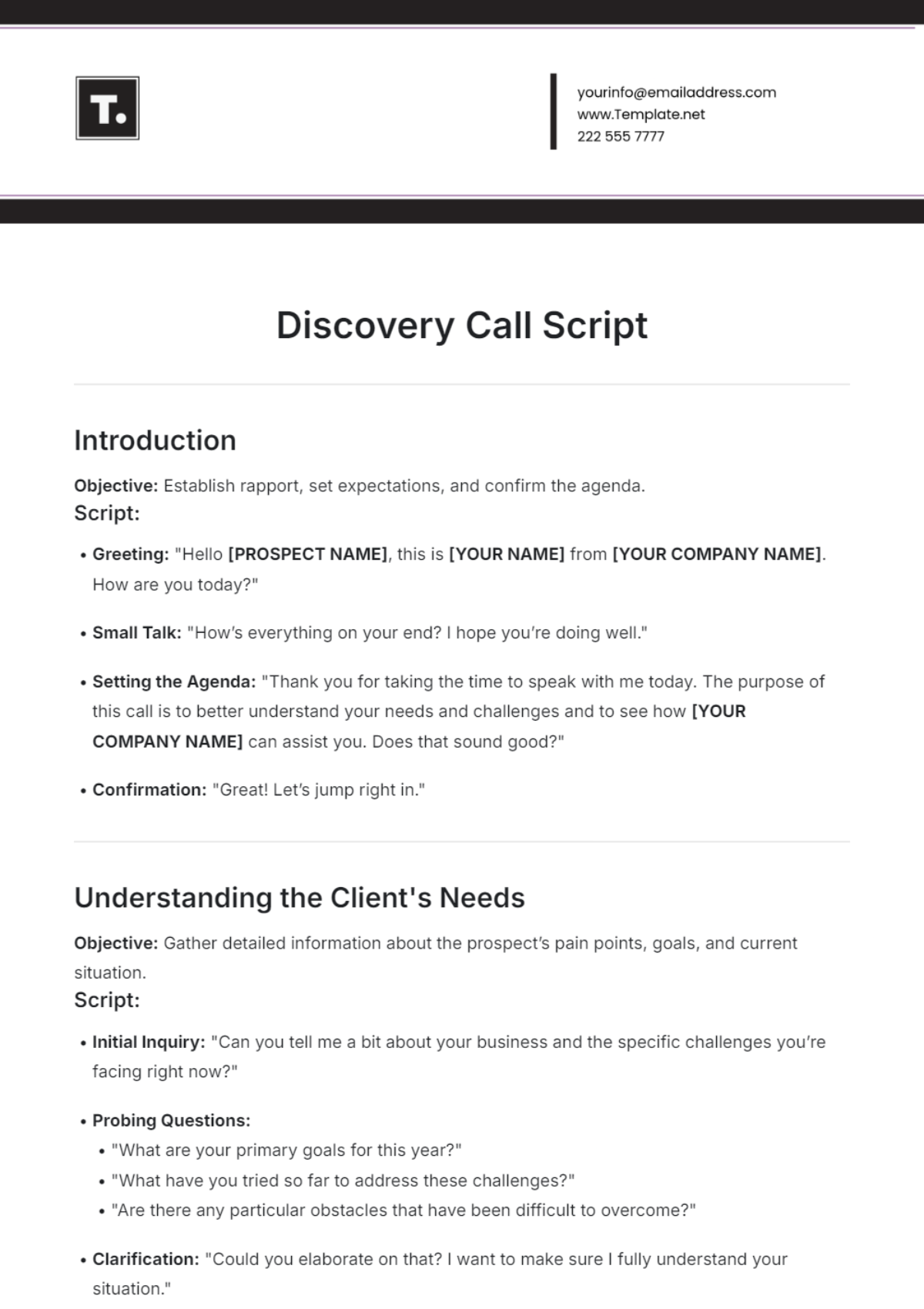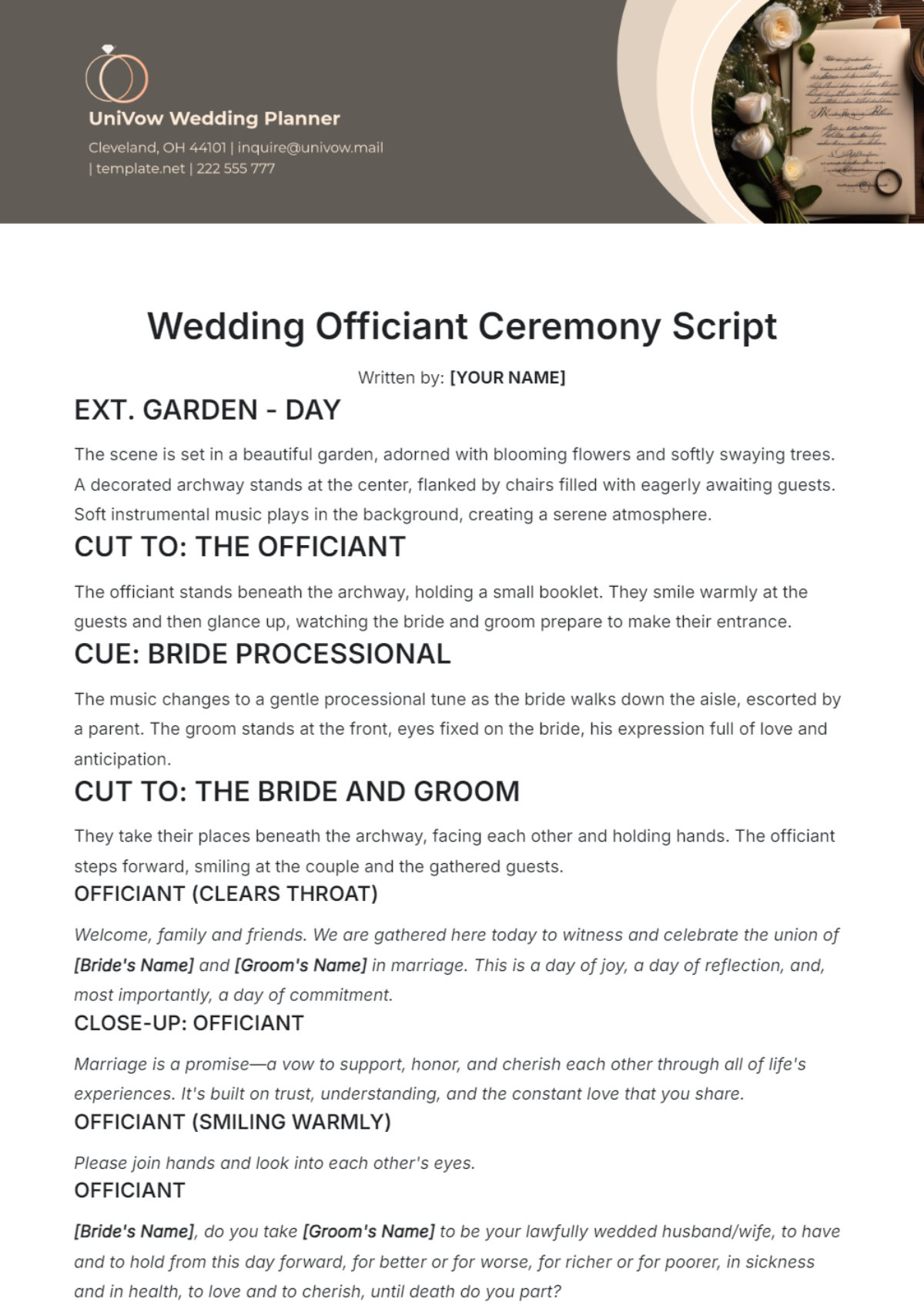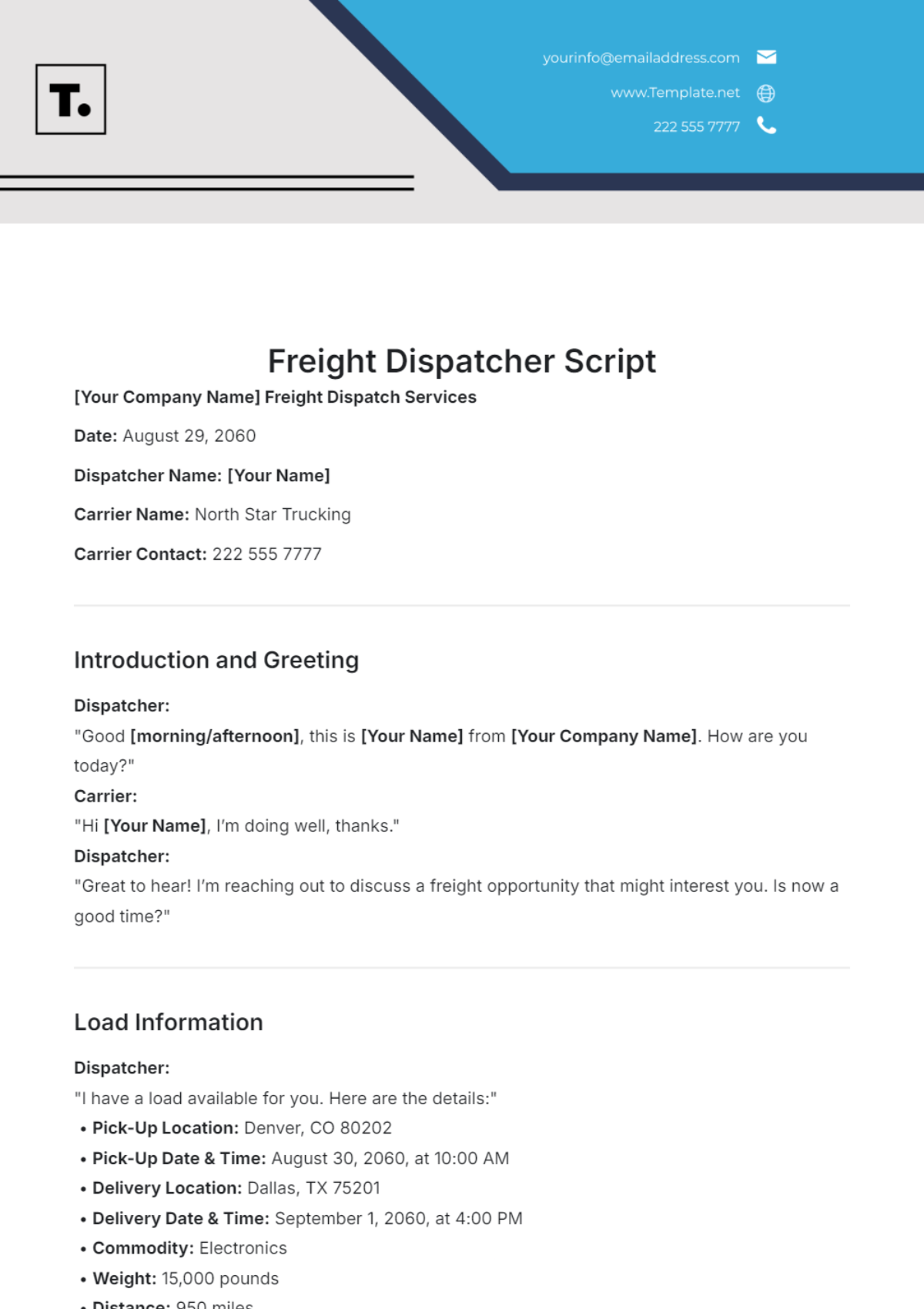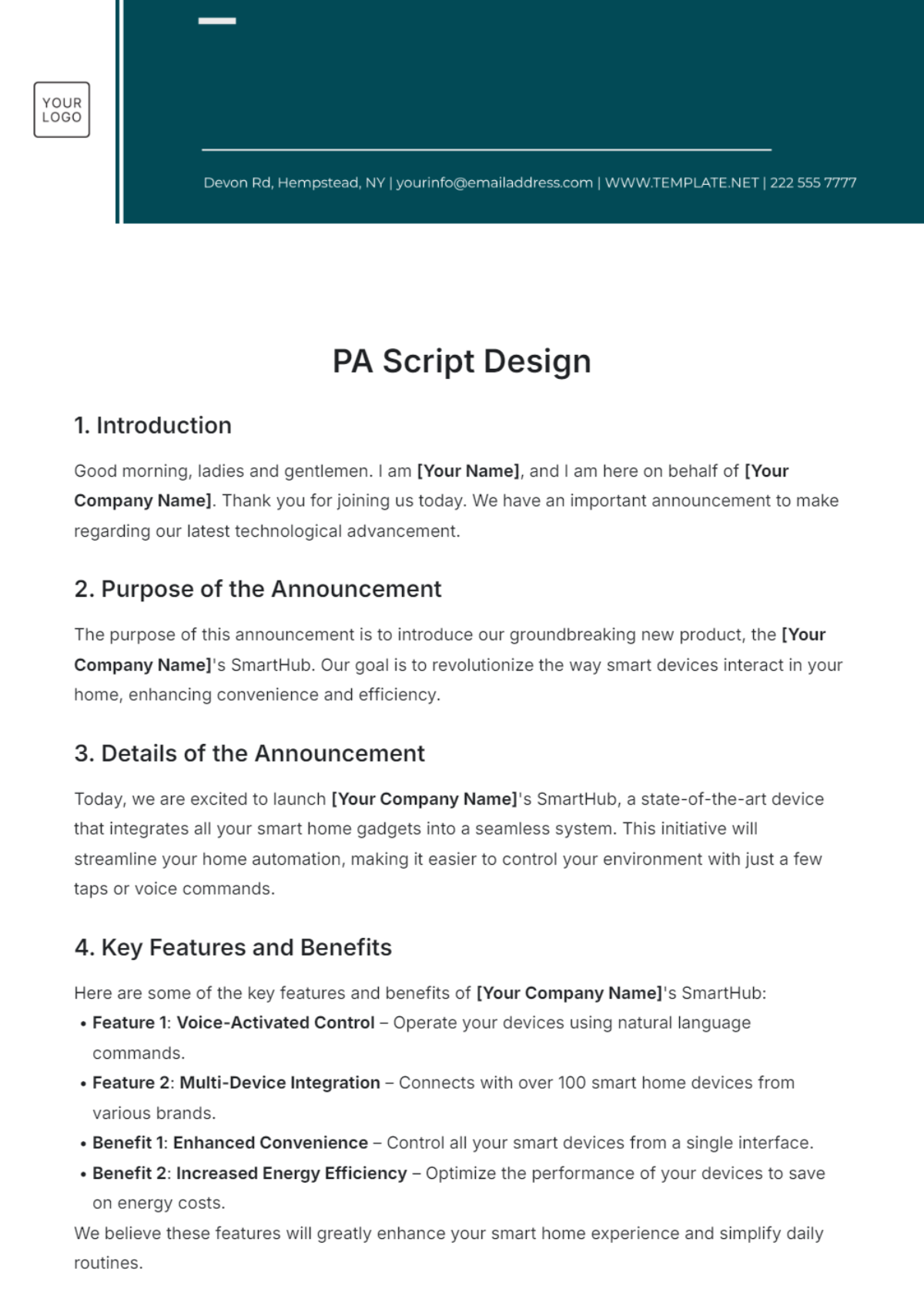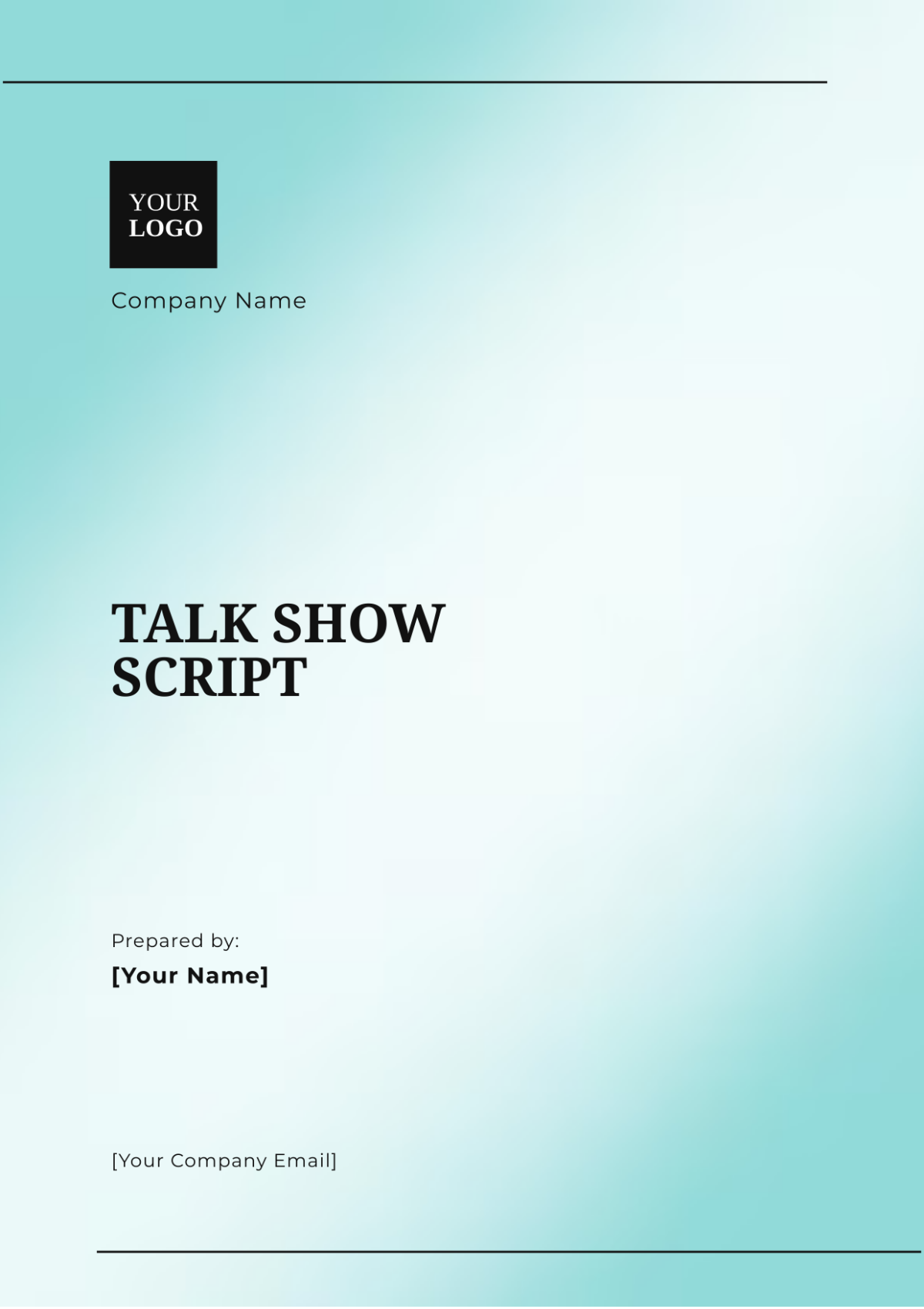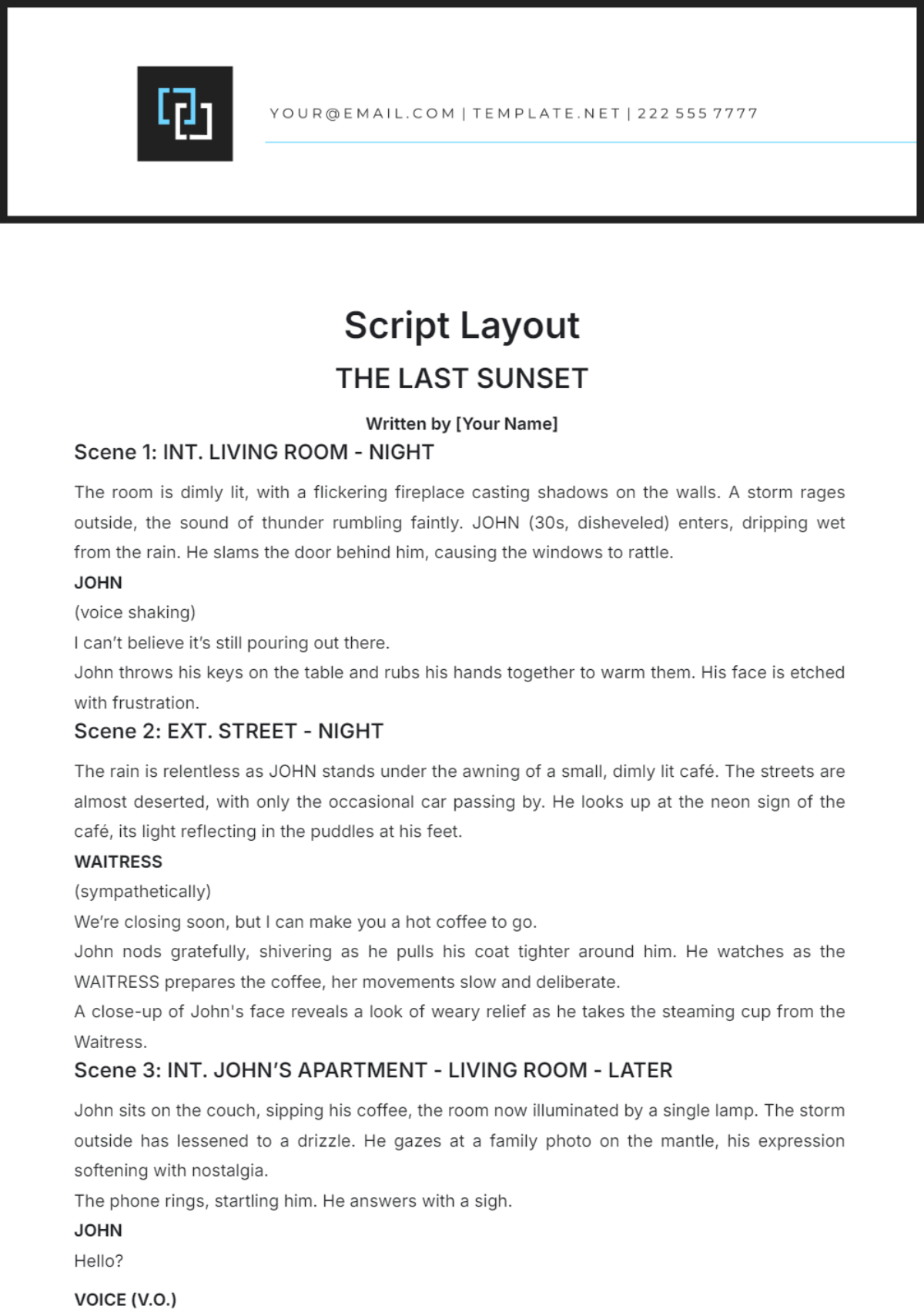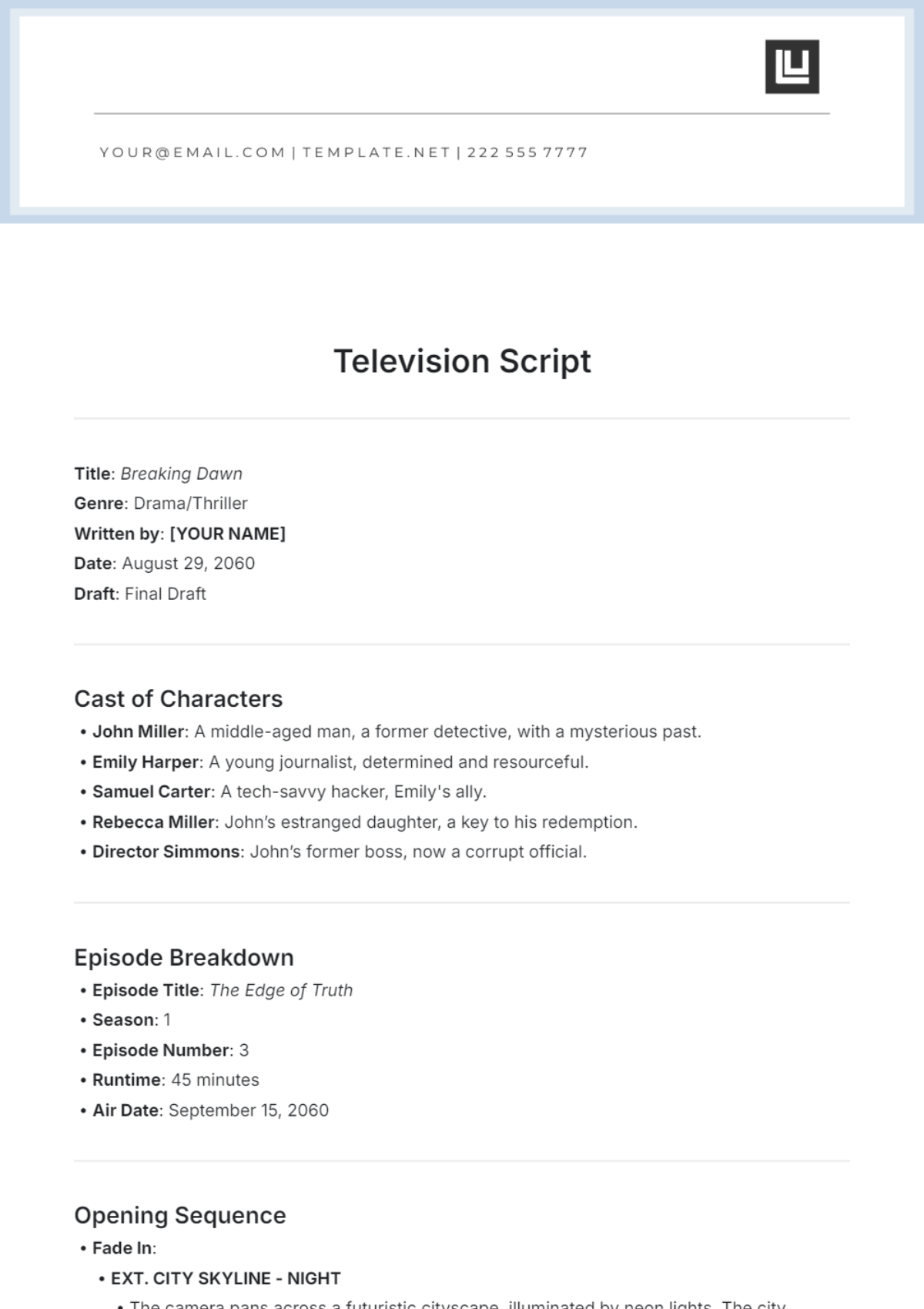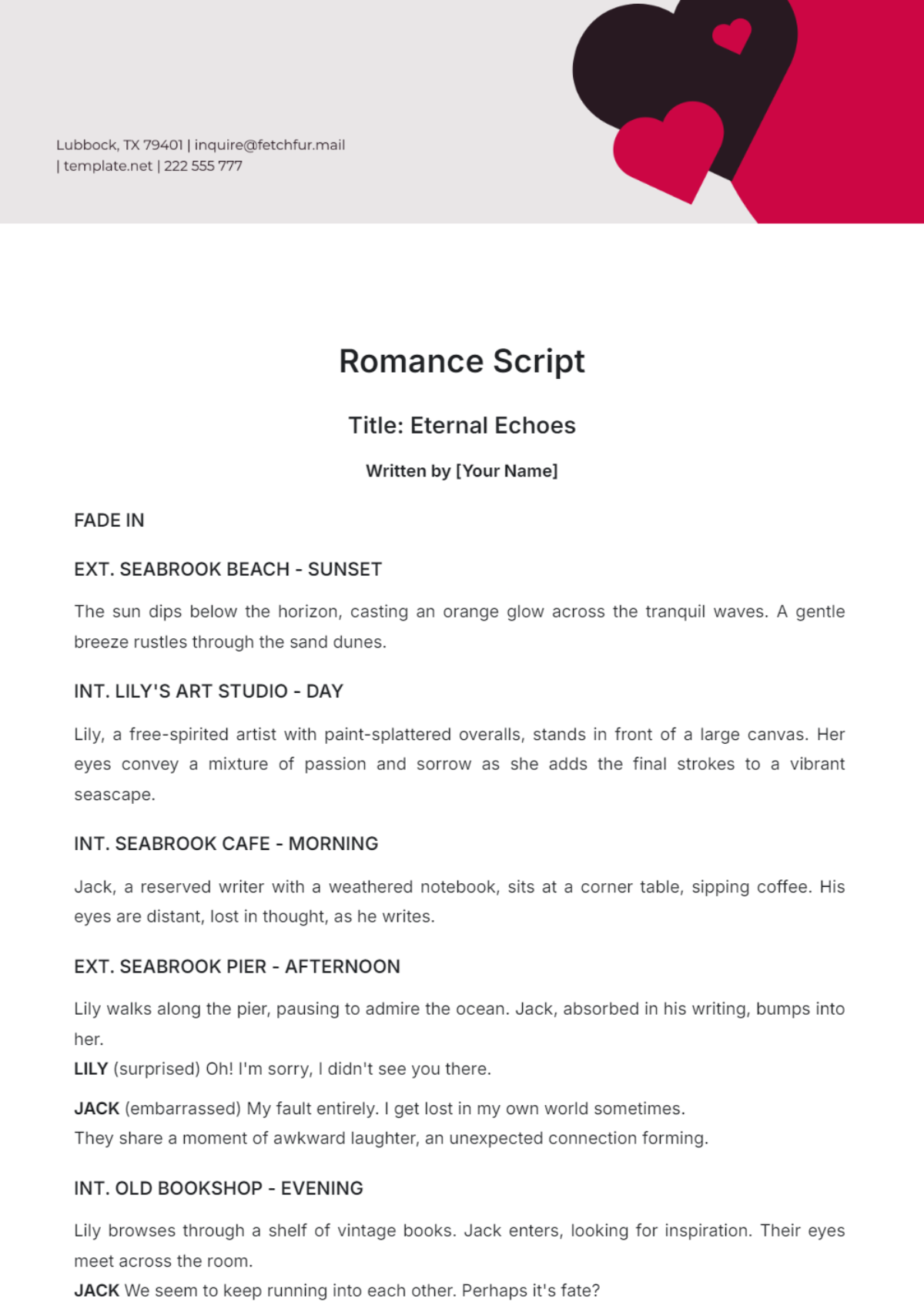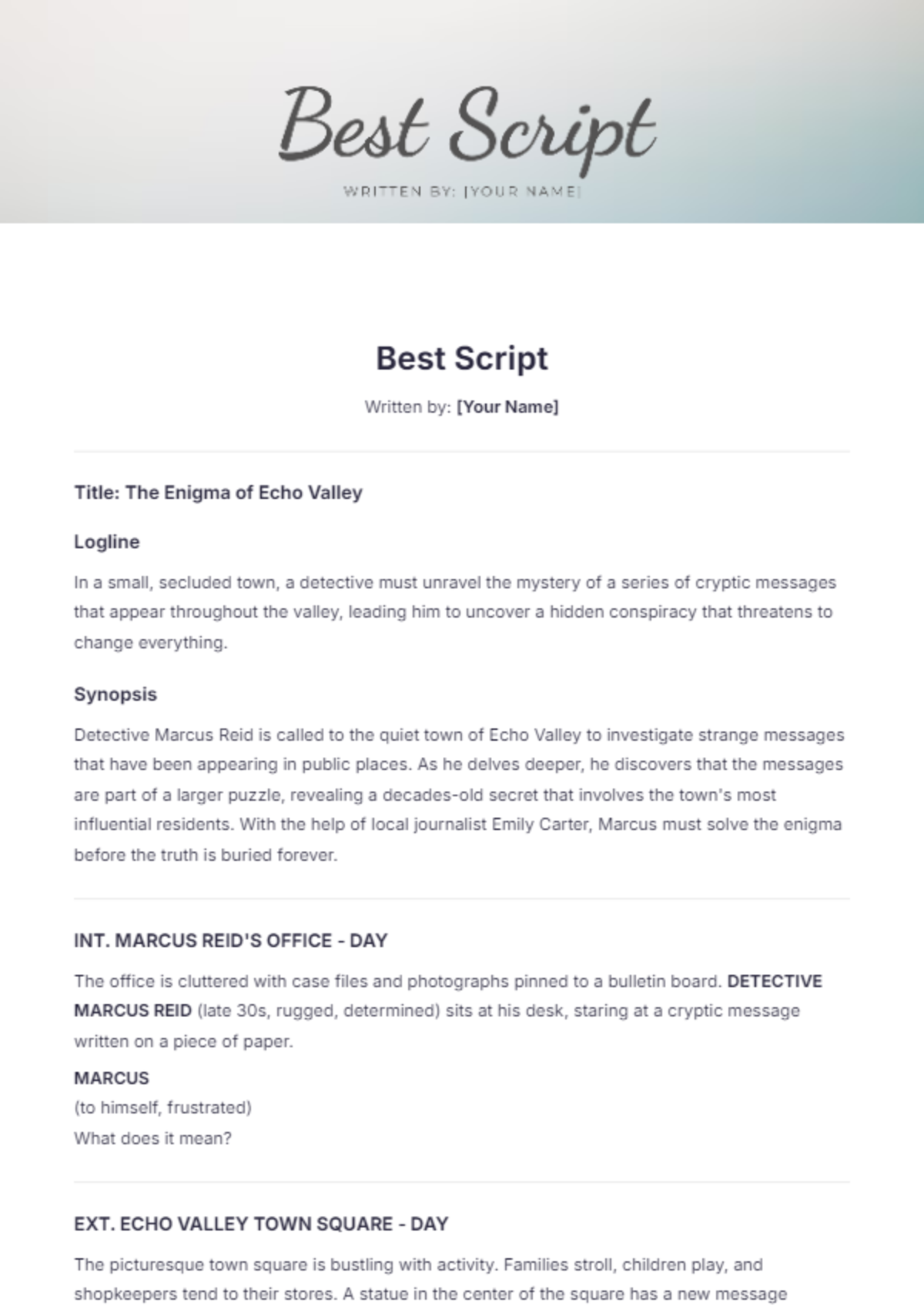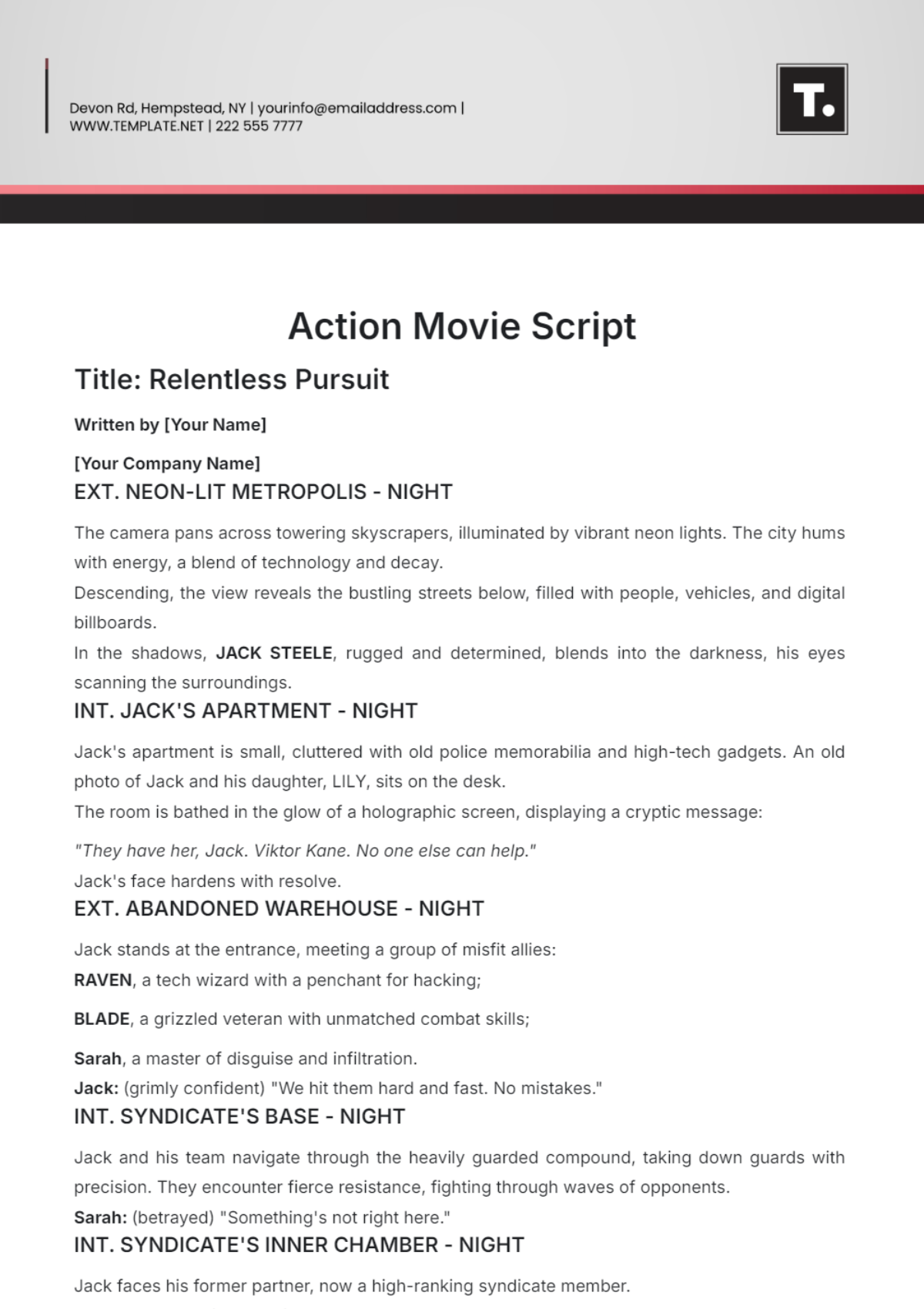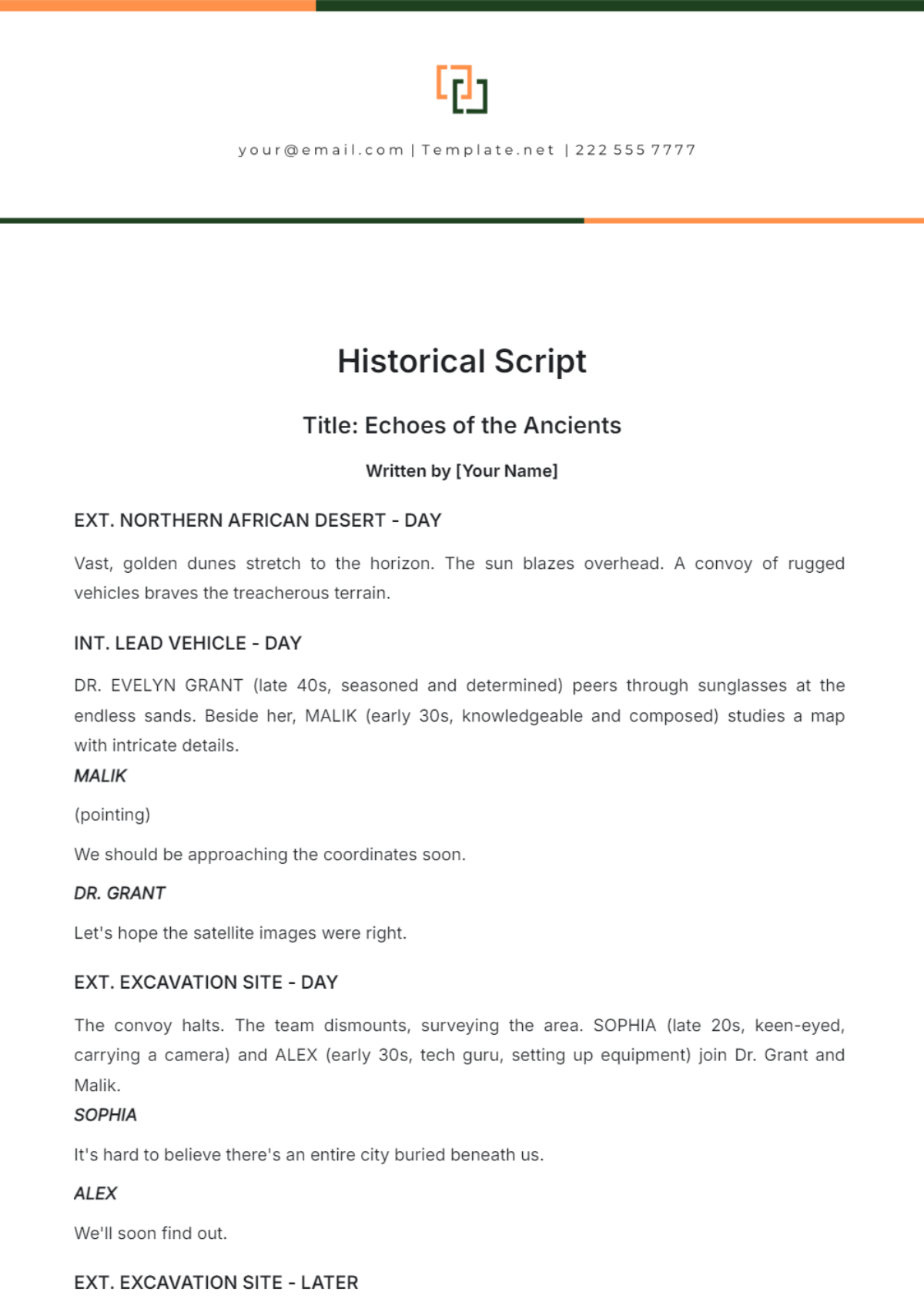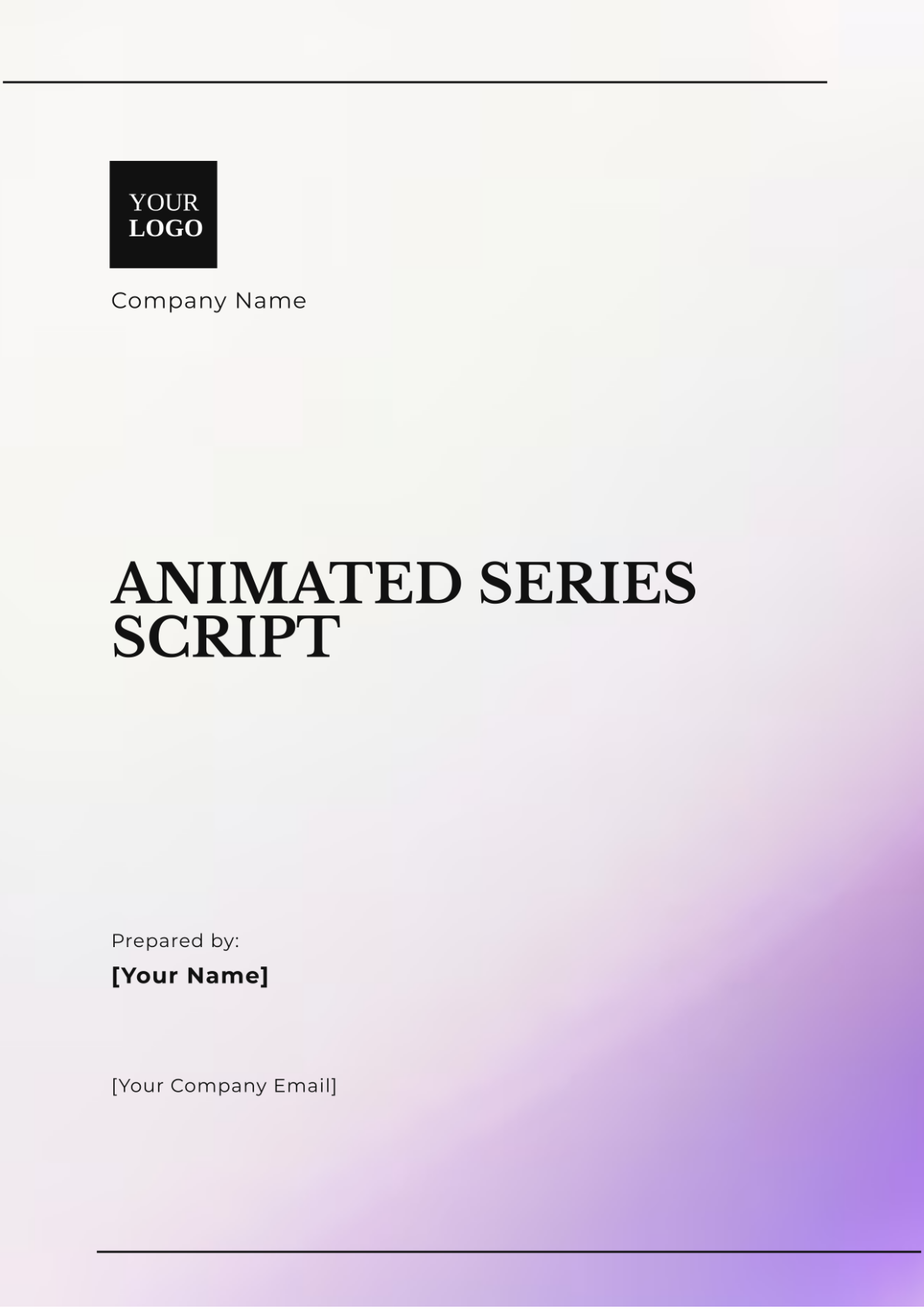Comic Script
I. Introduction
This Comic Script Template is carefully designed to aid comic writers in structuring their storylines, dialogues, and panels effectively. The template includes various sections that cover all aspects of comic scriptwriting, from plotting to character development and panel descriptions. This structured format helps maintain a clear narrative flow, ideal for both novice and expert comic writers.
Before diving into the script, fill out the following information to personalize and copyright your work: This script is made by [YOUR NAME]. This script is made under the organization, [YOUR COMPANY NAME]. The company address of the creator of this script is as follows: [YOUR COMPANY ADDRESS]. The company email of the creator of this script is as follows: [YOUR COMPANY EMAIL]. The company phone number of the creator of this script is as follows: [YOUR COMPANY NUMBER]. The company website of the creator of this script is as follows: [YOUR COMPANY WEBSITE]. This integral approach ensures the brand's unique identity is thoroughly embodied and well-represented through the narrative.
II. Plot Summary
Begin by outlining the central plot of your comic. This should include the main events, twists, and storyline goals. Think of this section as a roadmap for your comic narrative. Include key story arcs and how they will develop over the series to give yourself and your readers a clear view of where the story is heading.
Here, use bullets to list the main elements:
Main conflict
Key events
Climactic moment
Resolution scenario
III. Character Profiles
Every memorable comic is fuelled by strong characters. In this section, detail the main and supporting characters. Describe their personalities, backgrounds, motivations, and relationships with other characters. This will not only aid in your character development but also ensure consistency throughout your story.
Create a table to summarize each character:
Name | Role | Background | Key Traits | Motivations |
|---|---|---|---|---|
[CHARACTER NAME] | [ROLE IN STORY] | [BACKGROUND HISTORY] | [PERSONALITY TRAITS ] | [MOTIVATIONS] |
IV. Scene Breakdown
This section is essential for visually planning each scene. Document the setting, time of day, characters involved, and the purpose of each scene. Describe the visual elements clearly to enhance the artist’s ability to translate your scripts into compelling panels.
Follow this structured approach:
Scene Number and Title
Setting and Time
Main Characters Involved
Scene Purpose
Key Dialogue/Actions
V. Panel Descriptions
Each panel’s description is crucial as it transforms a script into visual art. Detail what happens in each panel, including character positions, expressions, and background activities. This will guide your illustrator and ensure that your artistic vision aligns with the narrative structure.
For each panel, specify:
Panel number
Key actions
Dialogue
Sound effects (if any)
Background details
VI. Dialogue
Dialogues are the voice of your characters. Write dialogues that reflect each character’s personality and advance the plot. Ensure that the dialogues are crisp and contribute to the story’s pacing. Avoid over-exposition through dialogue unless it serves a significant purpose.
Use a checklist to ensure effective dialogue delivery:
Is the dialogue true to the character?
Does it drive the plot forward?
Is it concise and impactful?
Does it enhance the reader's understanding or add depth?
VII. Final Notes
In this last section, provide any additional notes that can assist your artists and collaborators in better understanding your vision. This might include mood boards, tone suggestions, or thematic elements. Communicating these details will help align the creative vision across all team members involved and enhance coherence in the storytelling.
Remember, a well-written comic script is foundational to creating a meaningful and engaging comic book or graphic novel. Keep refining your script by incorporating feedback from peers and collaborators to craft a compelling narrative that resonates with your audience.
